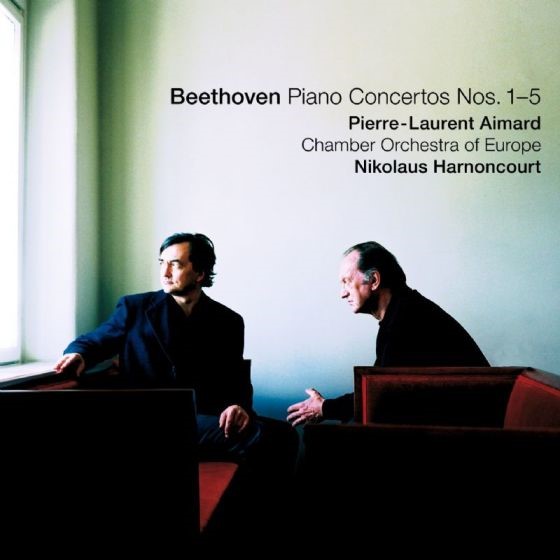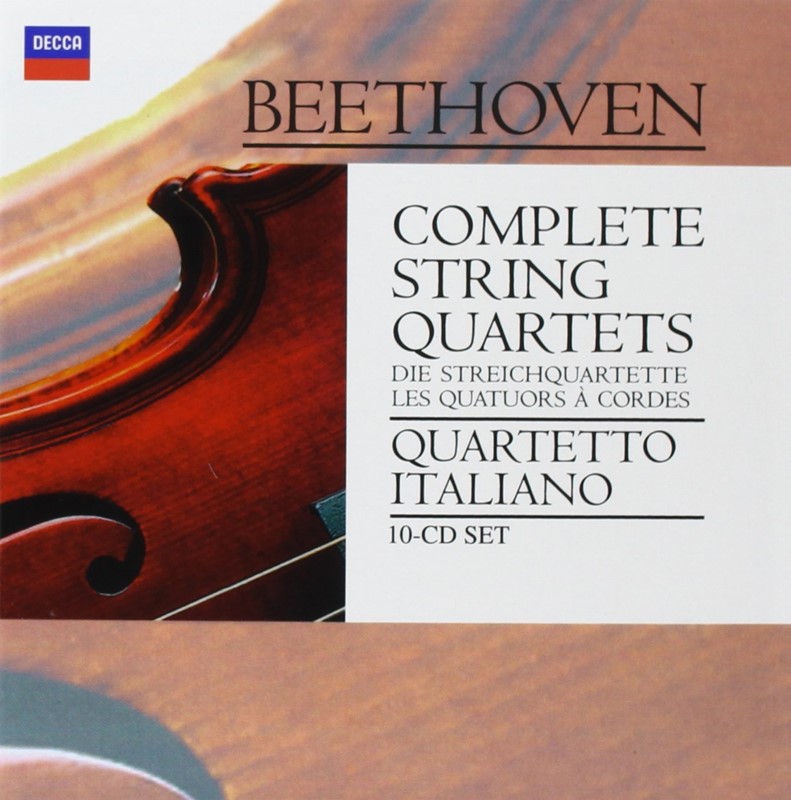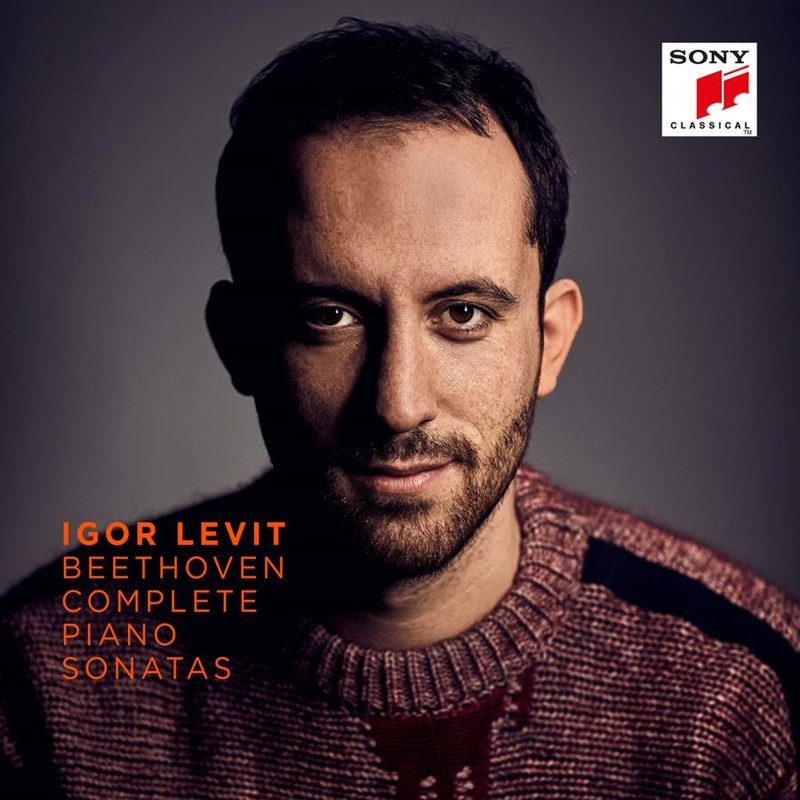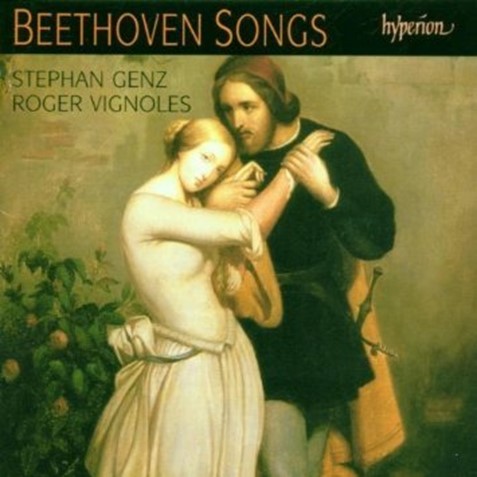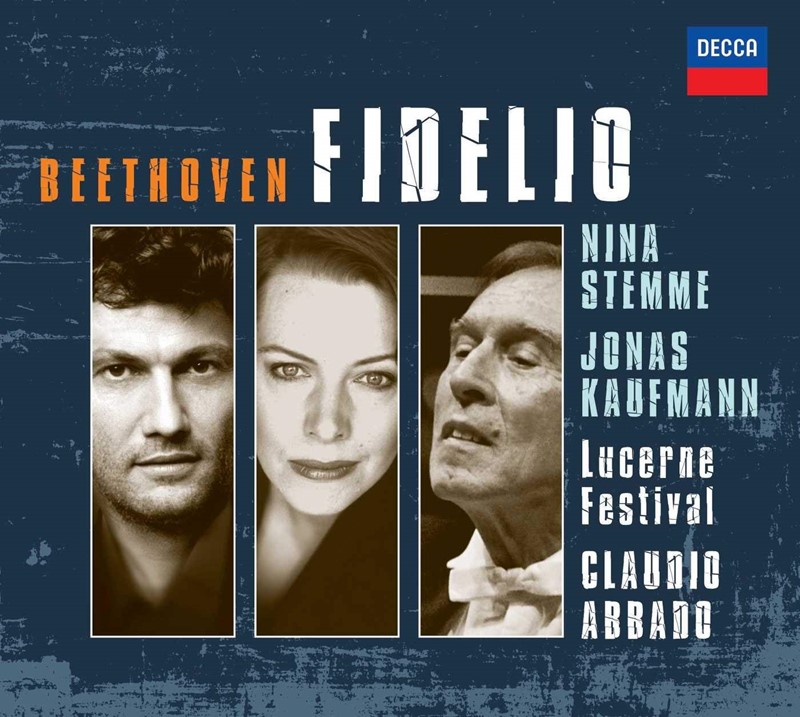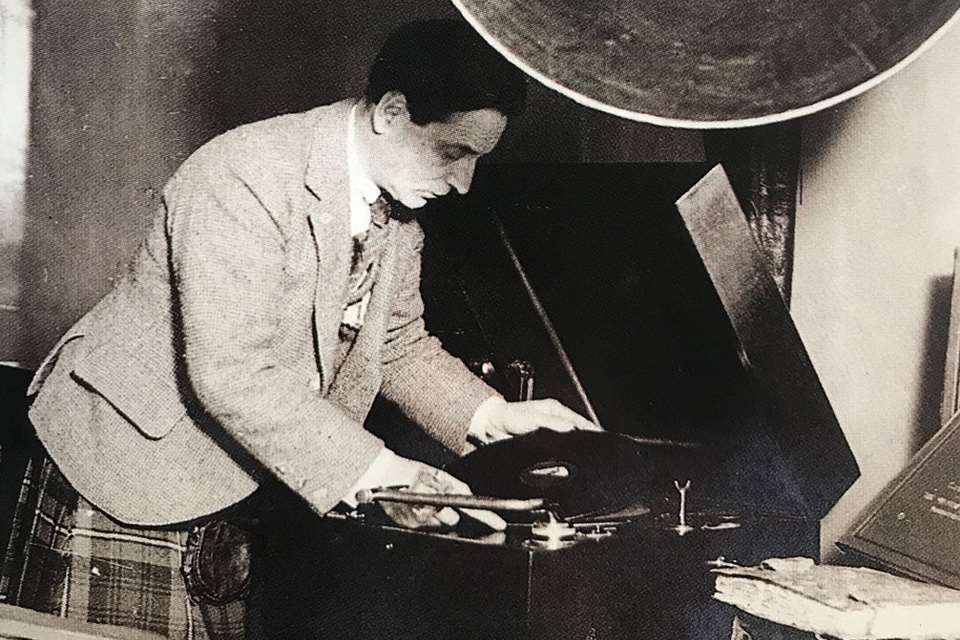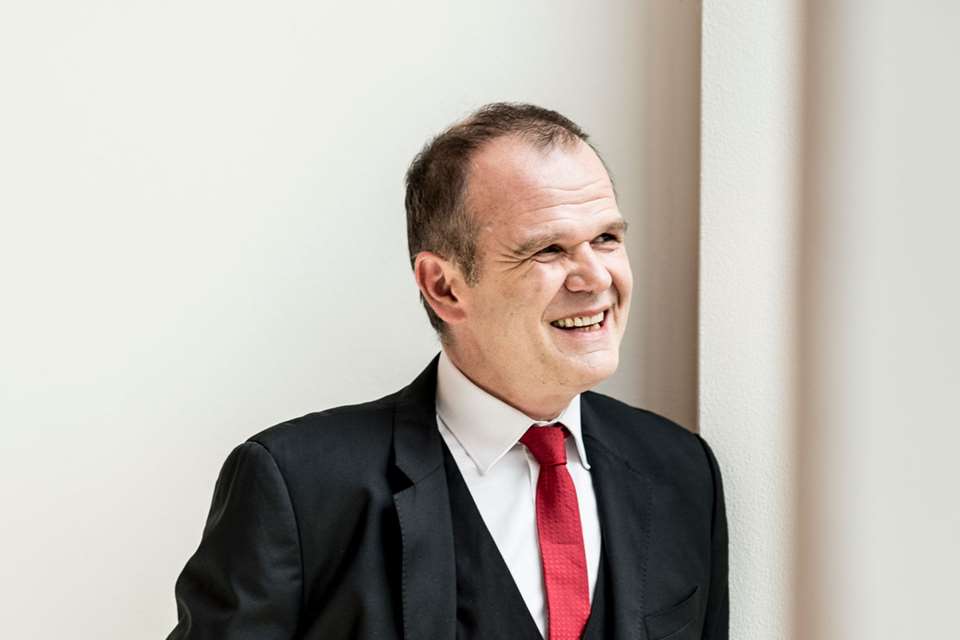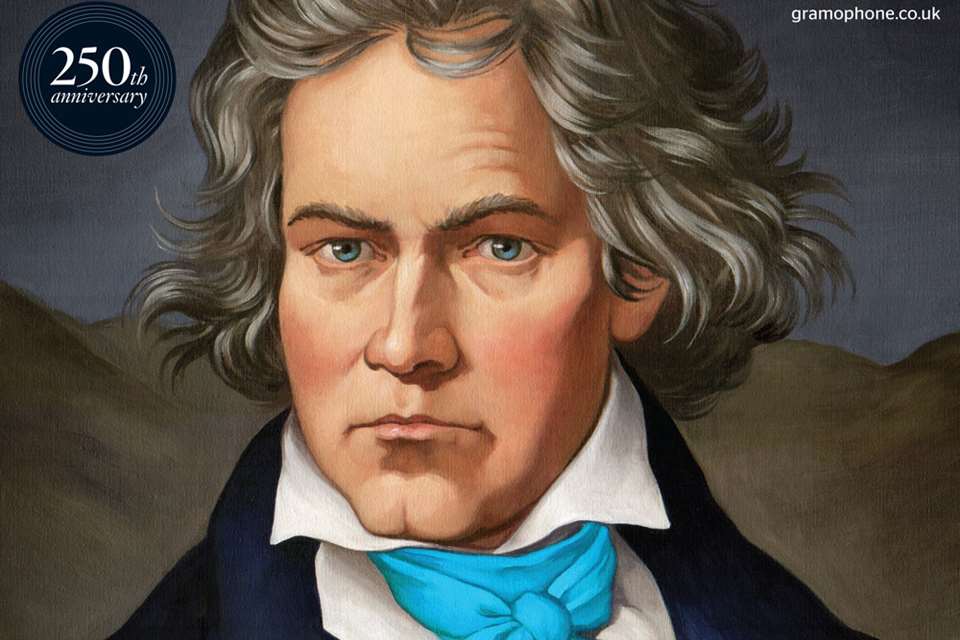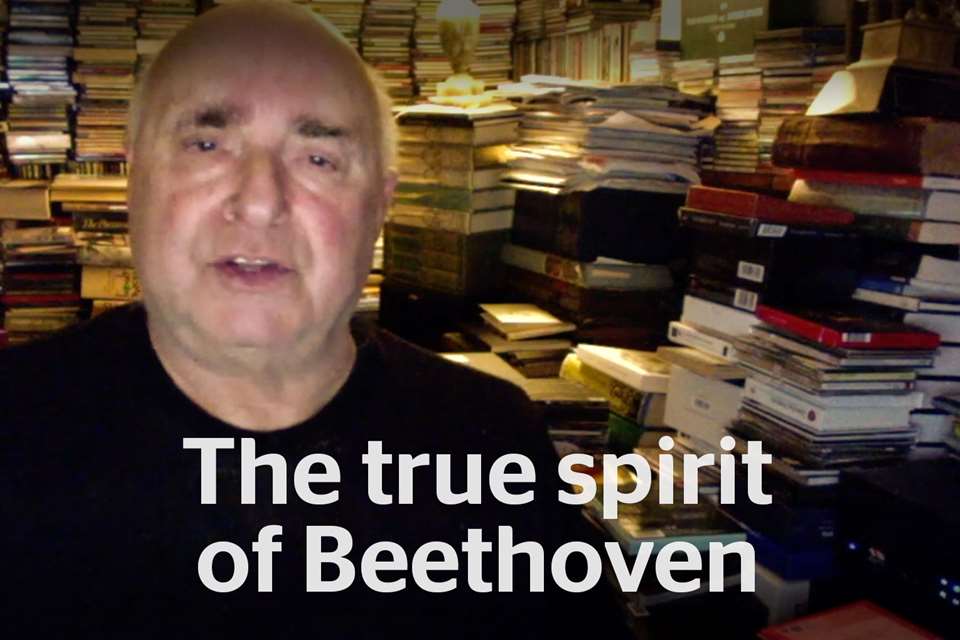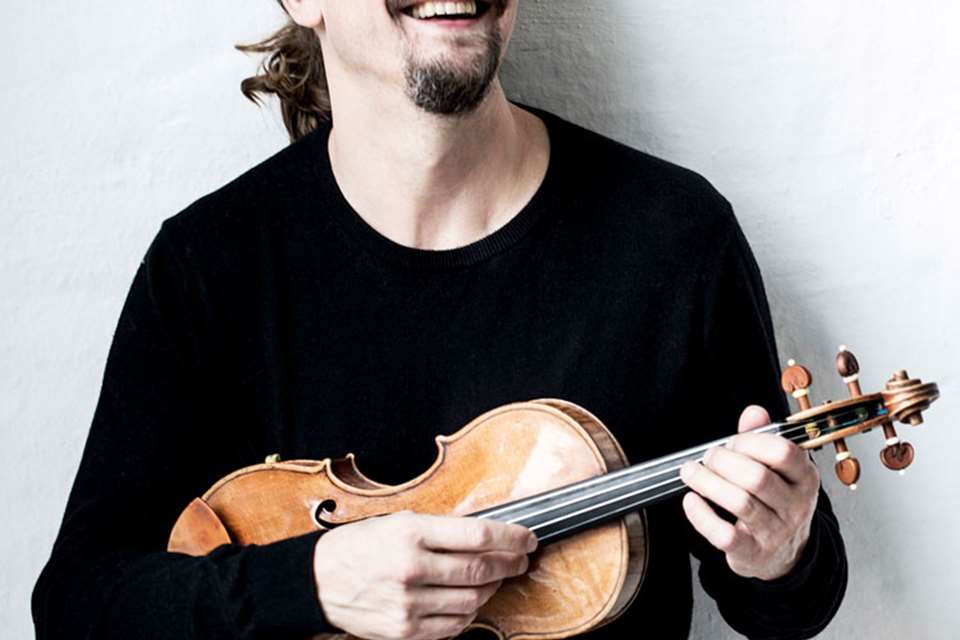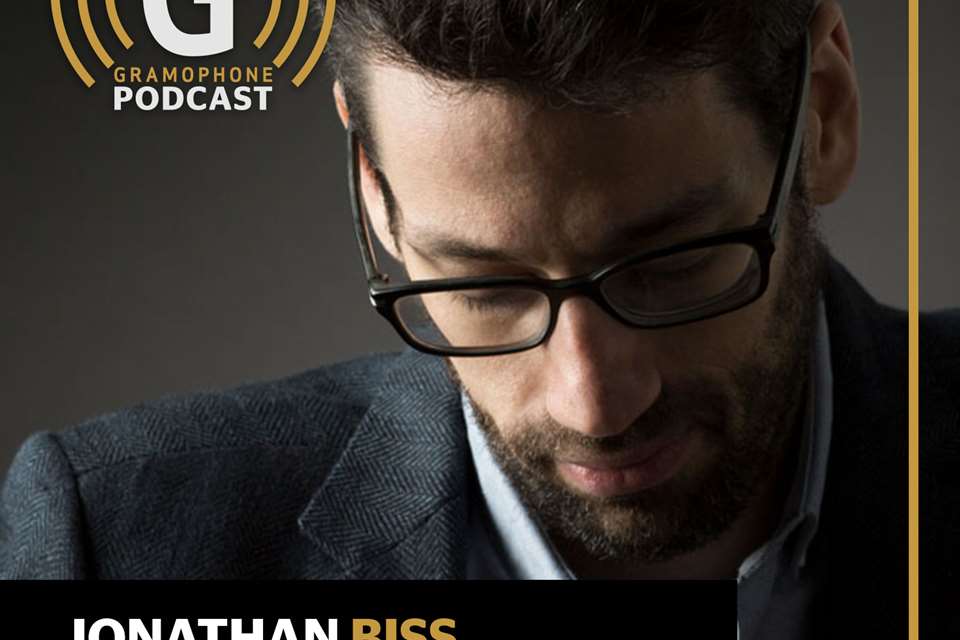The 50 best Beethoven recordings
Gramophone
Wednesday, November 1, 2023
50 of the finest Beethoven recordings available, complete with the original Gramophone reviews, featuring Nikolaus Harnoncourt, Mitsuko Uchida, Murray Perahia, Takács Quartet and more
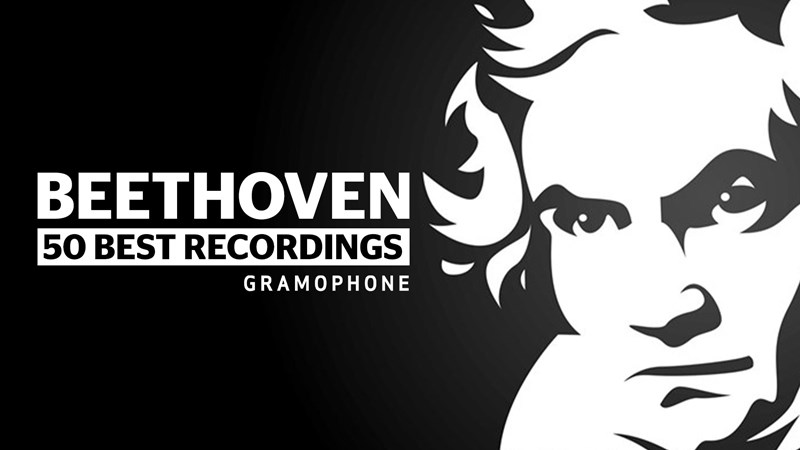
Ludwig van Beethoven dragged music from the Classicism of the 18th century into the Romantic era, which dominated musical thinking for 100 years. What he did was genuinely courageous: his single-minded vision, idealism, determination and personal bravery are awe-inspiring.
We are proud to present 50 of the finest recordings of Ludwig van Beethoven's music. Included here are Gramophone Award-winning albums, Recordings of the Month and Editor's Choice recordings.
The list is organised by genre, beginning with orchestral works, then moving though chamber, instrumental and vocal.
We have also included, where possible, the complete original Gramophone reviews, which are drawn from Gramophone's Reviews Database of more than 40,000 reviews. To find out more about subscribing to this unique and endlessly fascinating resource, visit: gramophone.co.uk/subscribe.
● The 50 best Johann Sebastian Bach recordings
● The 50 best Wolfgang Amadeus Mozart recordings
● The 50 best Johannes Brahms albums
Orchestral
Piano Concertos Nos 1-5
Pierre-Laurent Aimard pf Chamber Orchestra of Europe / Nikolaus Harnoncourt
Teldec
It does not seek to banish all conventional wisdom about the pieces, but it has asked a lot of questions about them, as interpreters should, and I warm to it not only for the boldness of its answers but for finding so many of the right questions to ask...
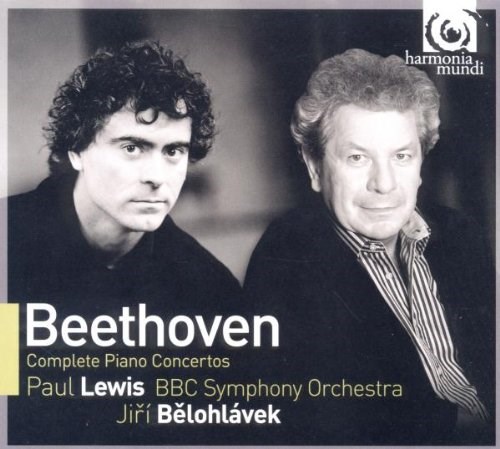
Piano Concertos Nos 1-5
Paul Lewis pf BBC Symphony Orchestra / Jiří Bělohlávek
Harmonia Mundi
May I say at once that Harmonia Mundi’s eagerly awaited set is a superlative achievement and that Lewis’s partnership with Jirí Belohlávek is an ideal match of musical feeling, vigour and refinement...
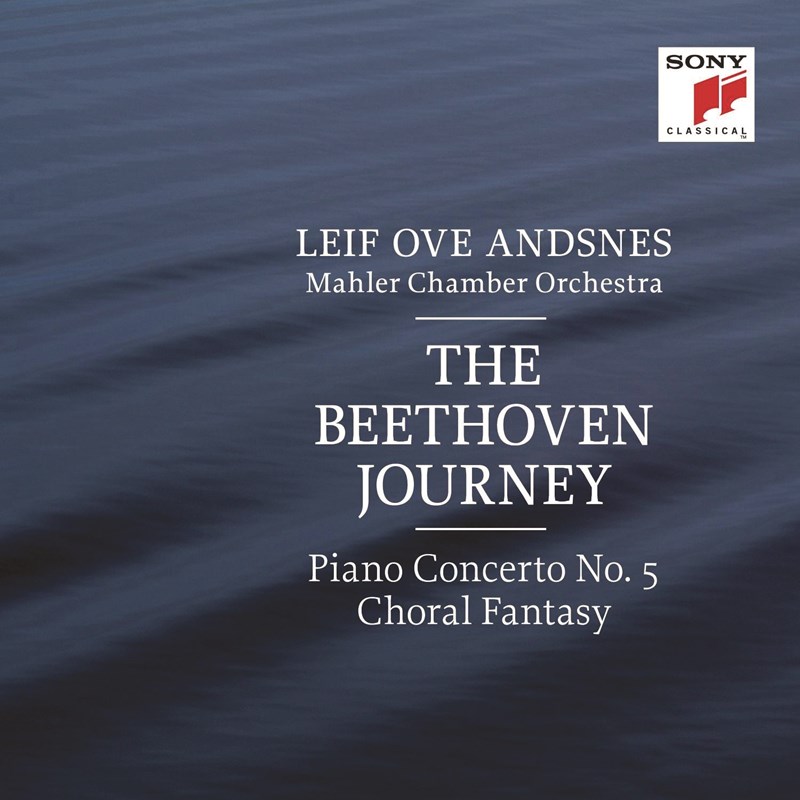
'The Beethoven Journey' (Piano Concertos Nos 1-5. Choral Fantasia)
Mahler Chamber Orchestra / Leif Ove Andsnes pf
Sony
Review of Vol 3: To have arrived so soon at the end of this journey seems almost a pity, for the company has been most engaging, by turns profound and delightful...
Read the reviews: Vol 1, Vol 2, Vol 3
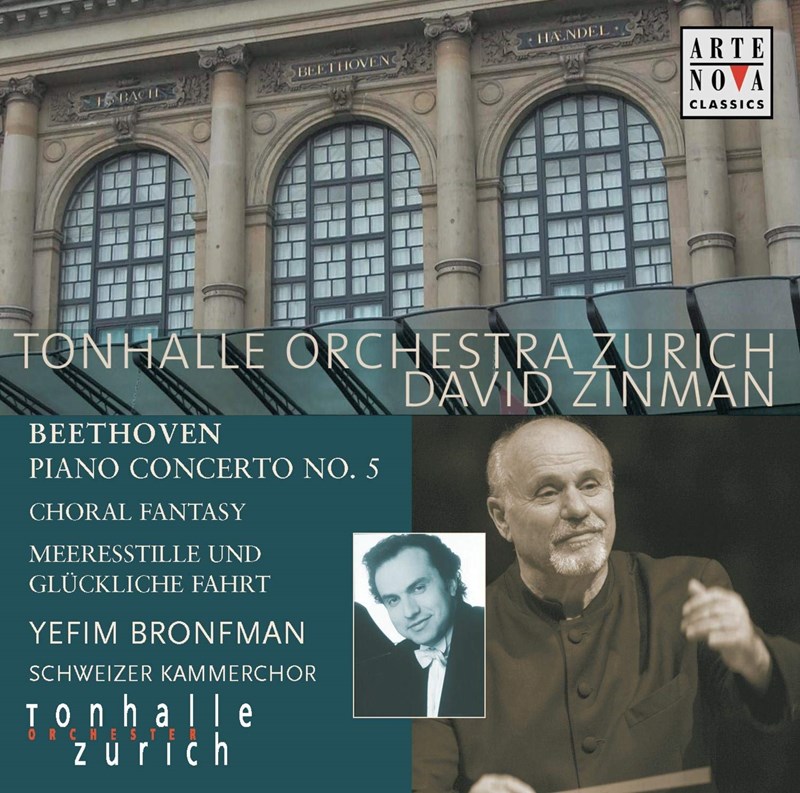
Piano Concertos Nos 1-5. Choral Fantasia. Calm Sea and Prosperous Voyage
Yefim Bronfman pf Tonhalle Orchestra, Zurich / David Zinman
Brilliant Classics (originally Arte Nova)
The sensation of shared listening, between Bronfman and the players and between the players themselves, is at its most acute in the First Concerto’s Largo, which although kept on a fairly tight rein is extremely supple (the woodwinds in particular excel)...
Read the reviews: Vol 1, Vol 2, Vol 3
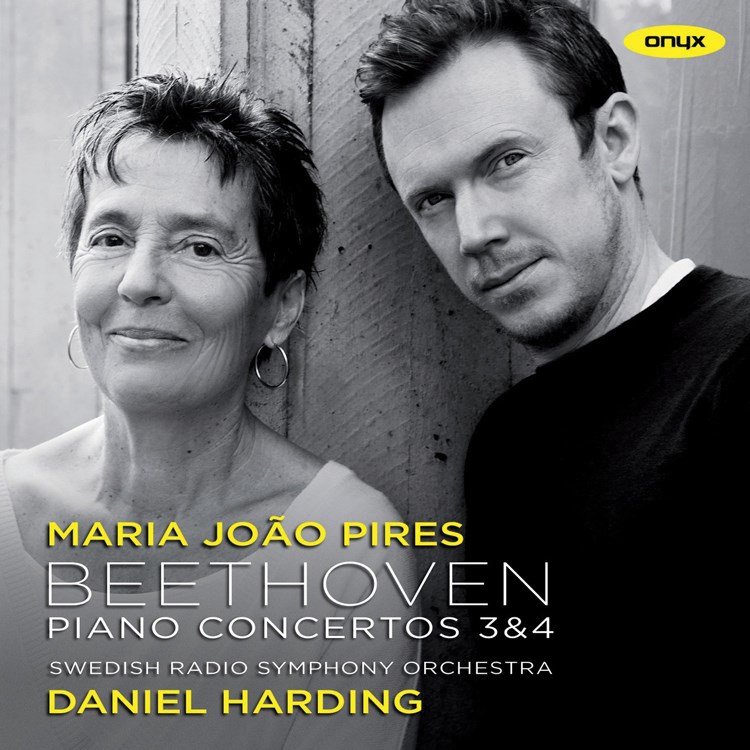
Piano Concertos Nos 3 & 4
Maria João Pires pf Swedish Radio Symphony Orchestra / Daniel Harding
Onyx
Even with a never-ending stream of Beethoven piano concerto recordings, whether from established masters (Kempff, Arrau, Gilels, etc) or work in progress (Andsnes and Sudbin), few performances come within distance of Pires’s Classical/Romantic perspective...
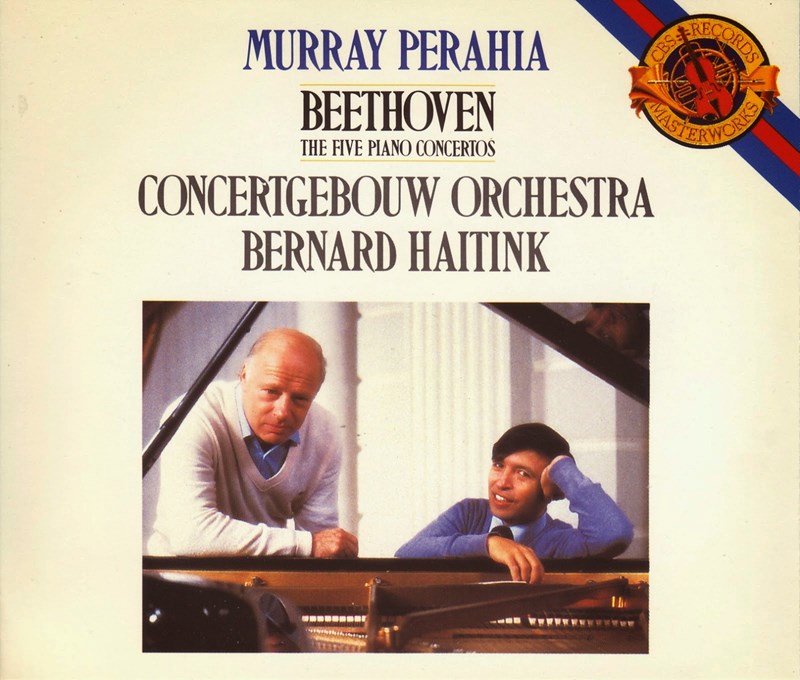
Piano Concertos Nos 1-5
Murray Perahia pf Concertgebouw Orchestra / Bernard Haitink
Sony Classical
There is something reassuring about the readings of all five concertos. The perfect civility of Perahia’s playing is a joy, the deeply felt slow movements particularly rewarding (try that of the Fourth, following the choice of the longer of the two cadenzas for the first movement)...
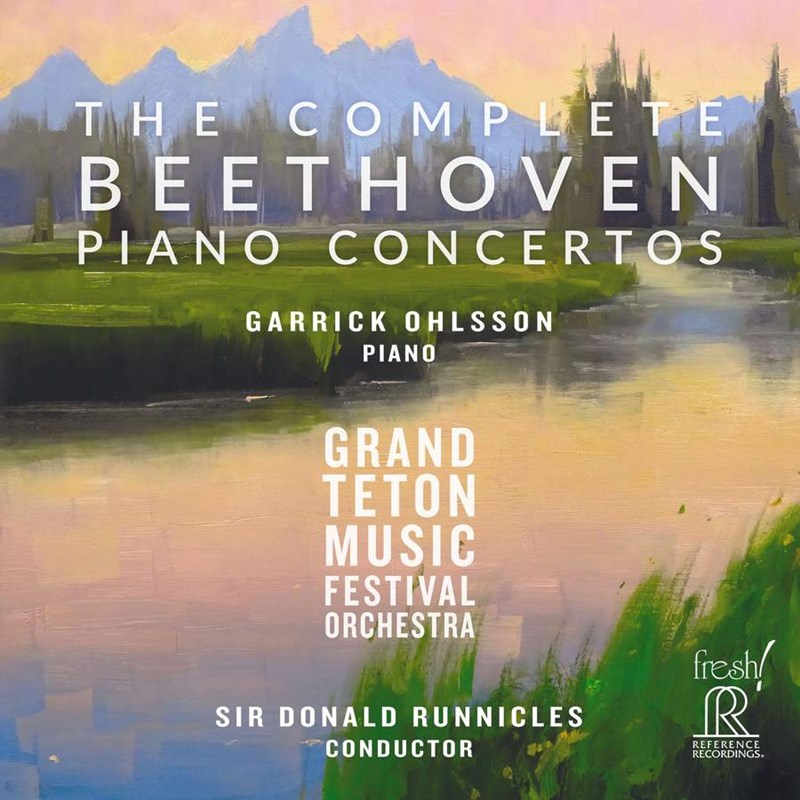
Beethoven Piano Concertos
Garrick Ohlsson pf Grand Teton Music Festival Orchestra / Sir Donald Runnicles
Reference Recordings
Of all pianists before the public today, Ohlsson’s technique is among the most honest. Every note is present and accounted for, nothing ever fudged, all within an exquisitely calculated proportionality. His approach is, above all, lyrical...
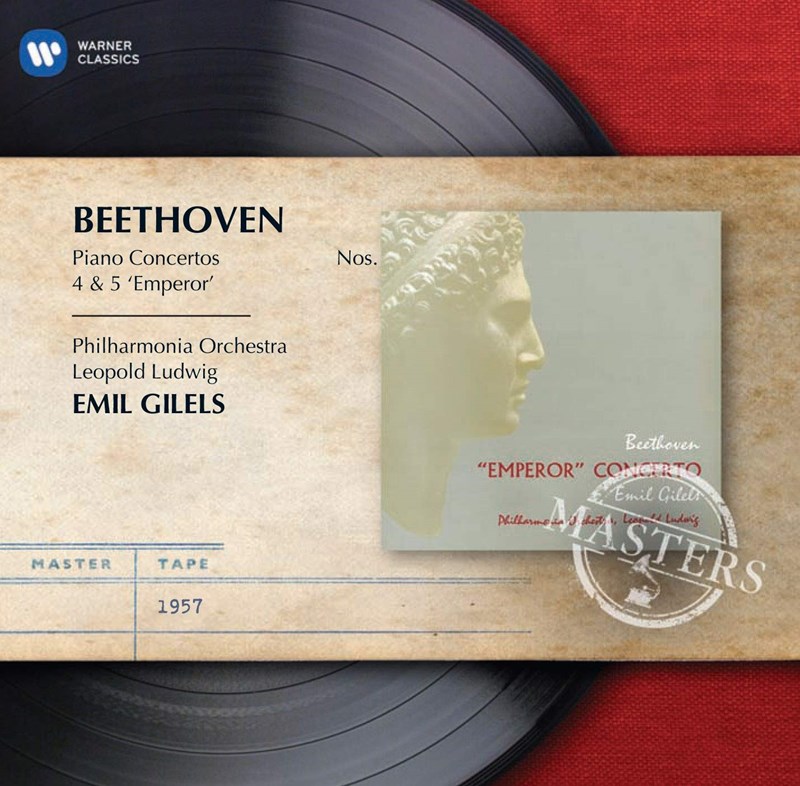
Piano Concertos Nos 4 & 5
Emil Gilels pf Philharmonia Orchestra / Leopold Ludwig
Warner Classics
This is one of the – perhaps the most – perfect accounts of the Fourth Concerto ever recorded. Poetry and virtuosity are held in perfect poise, with Ludwig and the Philharmonia providing a near-ideal accompaniment...
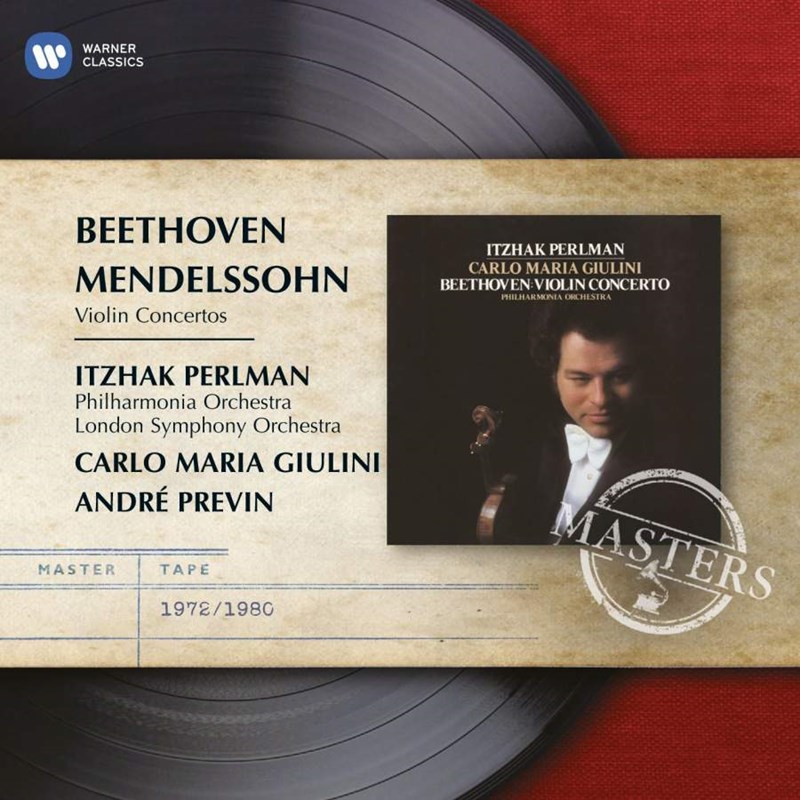
Violin Concerto
Itzhak Perlman vn Philharmonia Orchestra / Carlo Maria Giulini
Warner Classics
With full, warm digital recording, there is no finer version available, combining as it does so many of the special qualities one finds in the Chung and Mutter versions on the one hand, and in the strong, incisive Krebbers on the other... Edward Greenfield (September 1981)
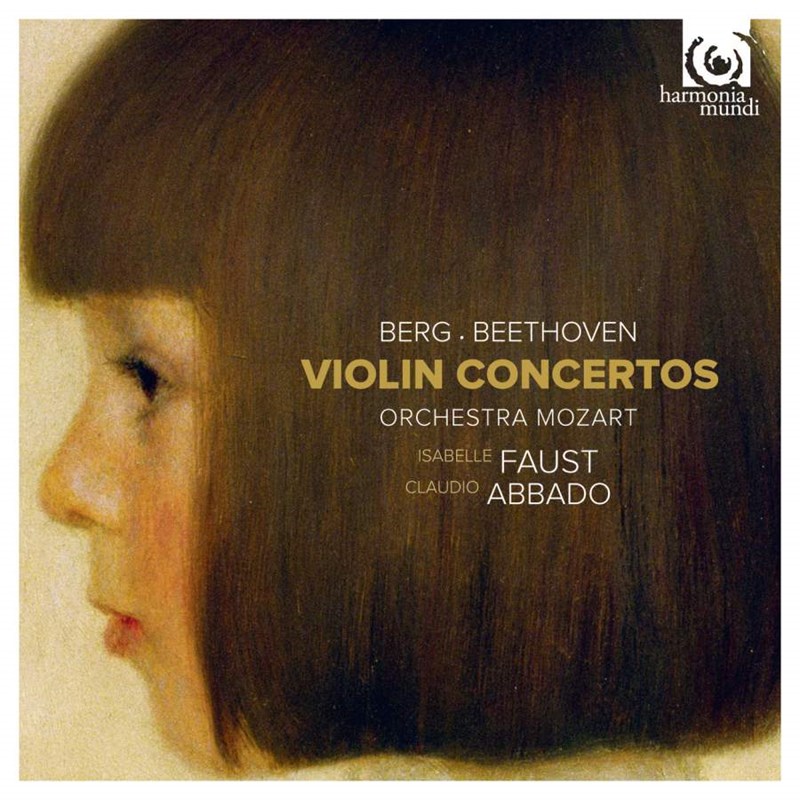
Violin Concerto
Isabelle Faust vn Orchestra Mozart / Claudio Abbado
Harmonia Mundi
Beethoven may not give as many directions as Berg, but from the very first bars the Orchestra Mozart’s woodwind choir show the same care over detail, the instruments perfectly balanced and with a commitment to bringing out the music’s soulful, expressive character. This sets the tone for the performance, Abbado encouraging his players to maximise the expressive quality of each theme, while keeping a firm hand on the unfolding of the larger design...
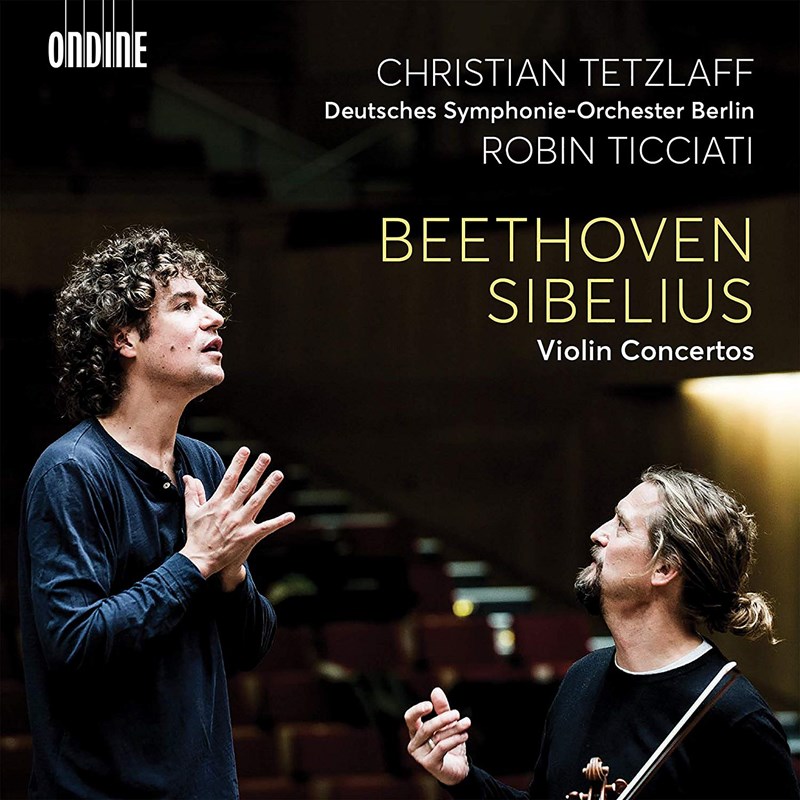
Violin Concerto
Christian Tetzlaff vn Deutsches SymphonieOrchester Berlin / Robin Ticciati
Ondine
There’s never any doubt that what you’re listening to is a real concerto, a battle of wills, more in line with Zehetmair and Brüggen (who use Wolfgang Schneiderhan’s cadenza with timpani) or Kremer and Harnoncourt (a cadenza incorporating piano) than with the likes of Perlman, Zukerman or Kennedy. Who knows: maybe this is roughly what Beethoven originally had in mind?
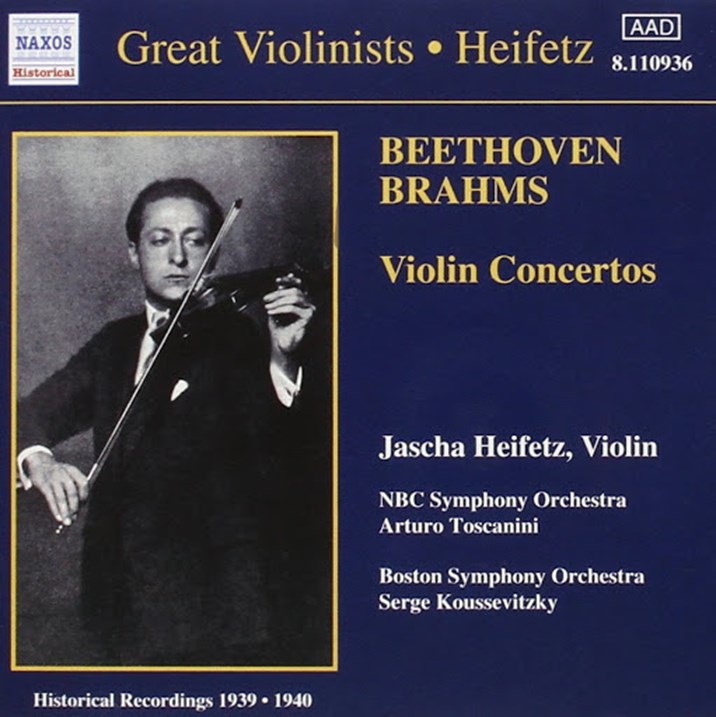
Violin Concerto
Jascha Heifetz vn NBC Symphony Orchestra / Arturo Toscanini
Naxos
The visionary, high tessitura violin writing is realised by Heifetz with a technical surety which is indistinguishable, in the final analysis, from his sense of the work as one of Beethoven’s most sublime explorations of that world (in Schiller’s phrase) ‘above the stars where He must dwell’....
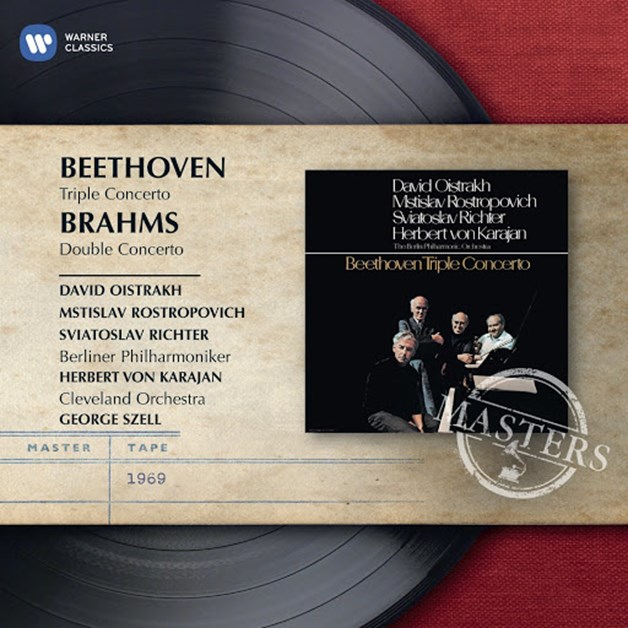
Triple Concerto
David Oistrakh vn Mstislav Rostropovich vc Sviatoslav Richter pf Berlin Philharmonic Orchestra / Herbert von Karajan
Warner Classics
EMI planned for a long time to assemble this starry line-up of soloists, conductor and orchestra for Beethoven's Triple Concerto, and the artists do not disappoint, bringing sweetness as well as strength to a work which in lesser hands can sound clumsy and long-winded... Christopher Headington (July 1993)
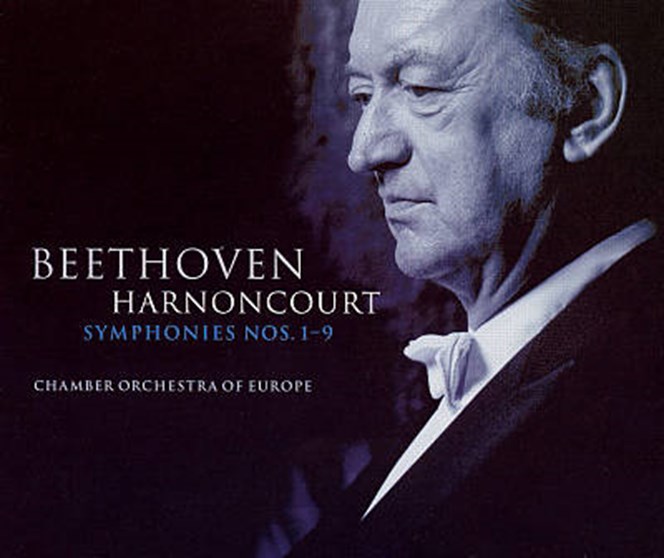
Symphonies Nos 1-9
Chamber Orchestra of Europe / Nikolaus Harnoncourt
Warner Classics
Harnoncourt doesn't pretend that what he offers is Beethoven as the composer imagined it. With the exception of the trumpets, the instruments are all modern, and while phrasing, rhythmic articulation, expression and balance reveal Harnoncourt's rigorous and passionate pursuit of historical truth, the results neither sound nor feel like anything offered under that banner before...
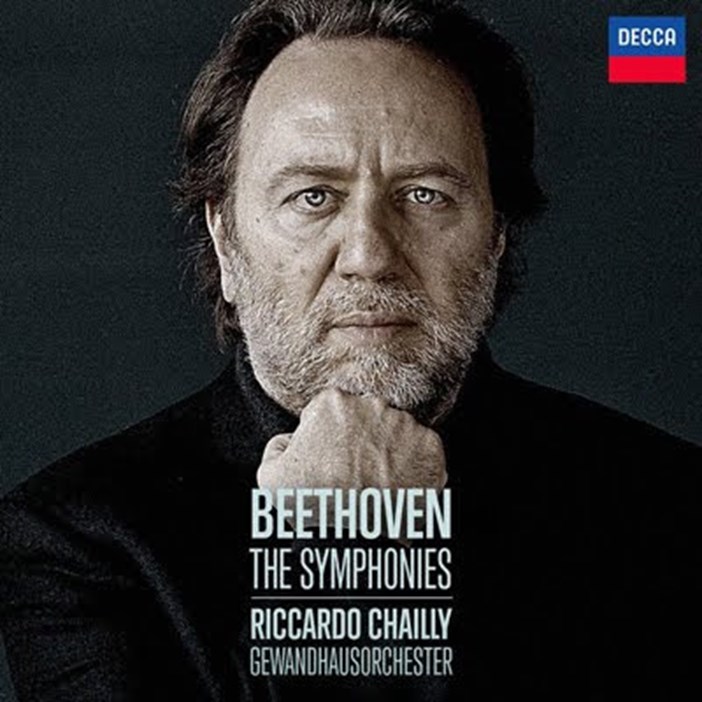
Symphonies Nos 1-9
Gewandhausorchester, Leipzig / Riccardo Chailly
Decca
Riccardo Chailly’s first recorded Beethoven cycle shows him to be a Classicist through and through. This is no surprise given the classicising tendency of the Toscanini-led Italian school of Beethoven performance...
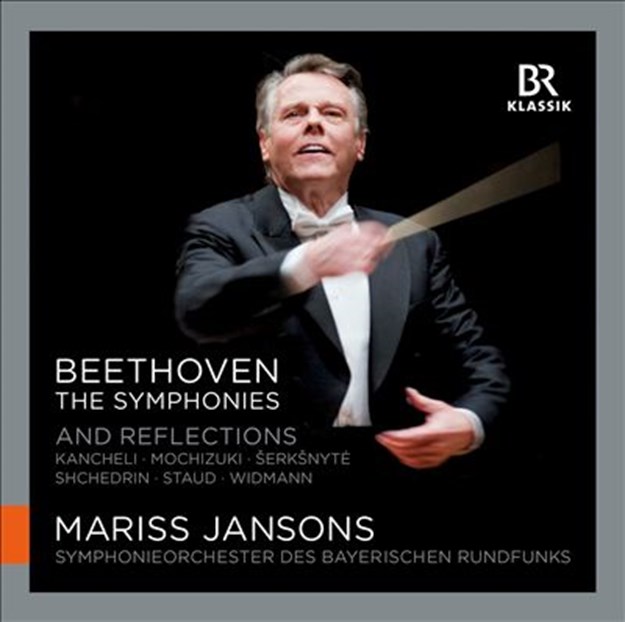
Symphonies Nos 1-9
Bavarian Radio Symphony Orchestra / Mariss Jansons
BR-Klassik
This is an exceptional realisation of Beethoven’s nine symphonies, one of those rare occasions when one is left with a feeling of having been in the presence of the thing itself. The key to the cycle’s success is the quality of the musicianship...
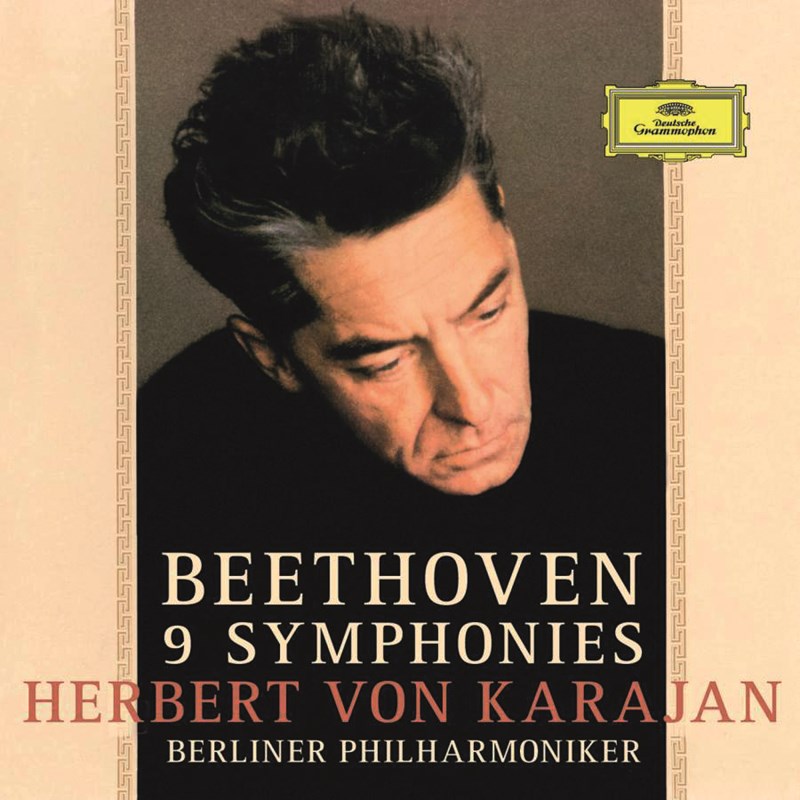
Symphonies Nos 1-9
Berlin Philharmonic Orchestra / Herbert von Karajan
DG
The names Philharmonia, Karajan and Legge made this an historic recording enterprise, but to these personalities must be added the fact that the LP record was then fairly new, stereo was just happening and, as Karl Schumann's accompanying note reminds us, Karajan's Beethoven, energetic, strongly rhythmical and deeply concerned with beauty of sound, was the antithesis of Furtwangler's, who died while this cycle was still incomplete...
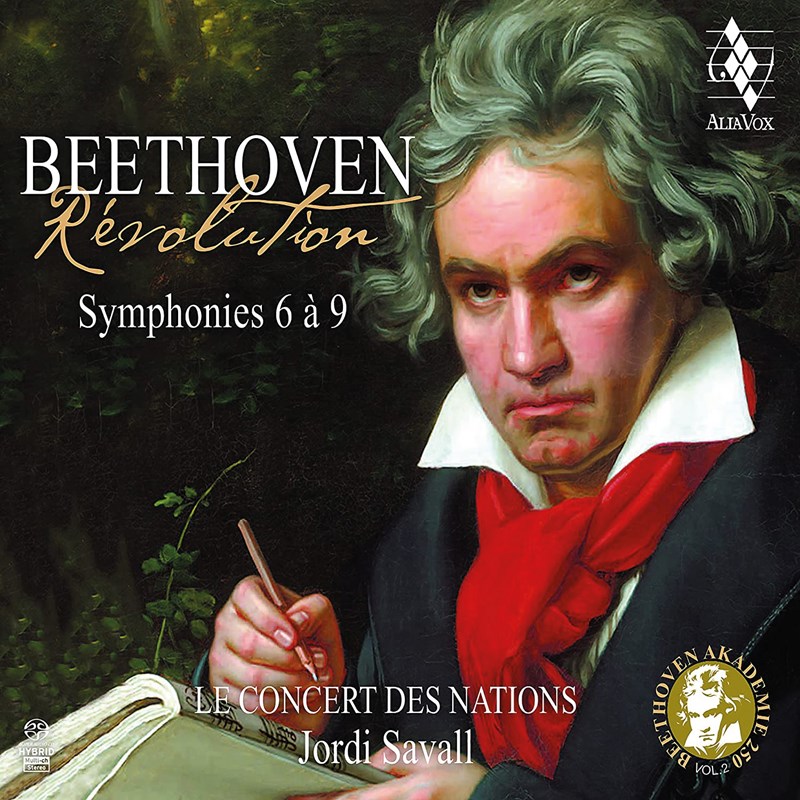
Beethoven ‘Révolution, Vol 2’ Symphonies Nos 6-9
Le Concert des Nations / Jordi Savall
Alia Vox
Much as I will always love Norrington’s trailblazing recordings and Krivine’s crisp, underrated set, Savall’s may well have just become my favourite period-instrument Beethoven cycle of them all...
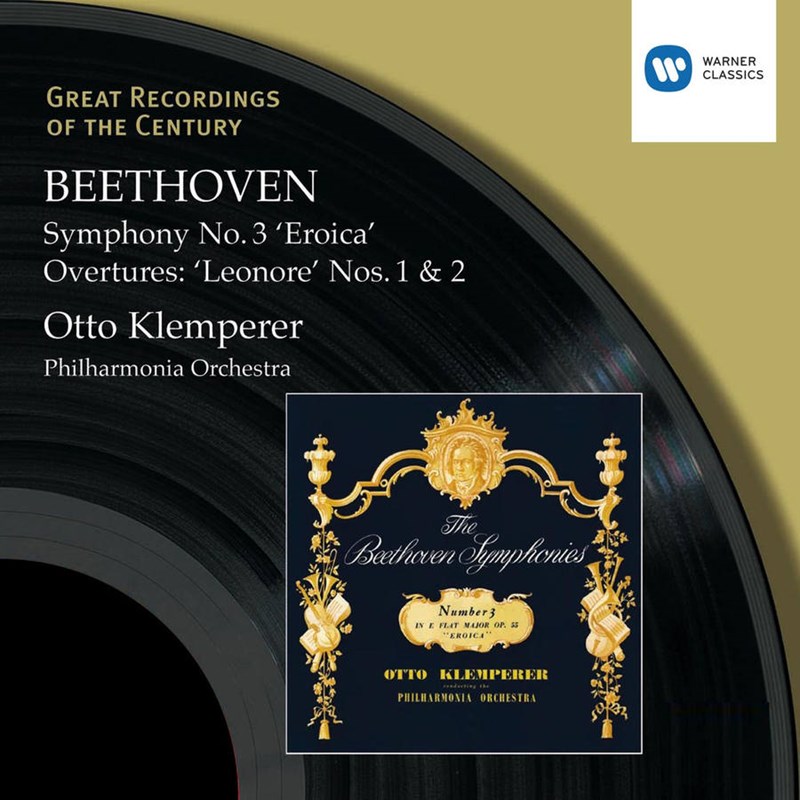
Symphony No 3. Overtures – Leonore Nos 1 & 2
Philharmonia Orchestra / Otto Klemperer
Warner Classics
This is a great performance, steady yet purposeful, with textures that seem hewn out of granite. (Once or twice they cause a slight buzz of distortion for which EMI apologise in their booklet.) There is no exposition repeat, and the trumpets blaze out illicitly in the first movement coda, but this is still one of the great Eroicas on record... Richard Osborne (April, 1992)
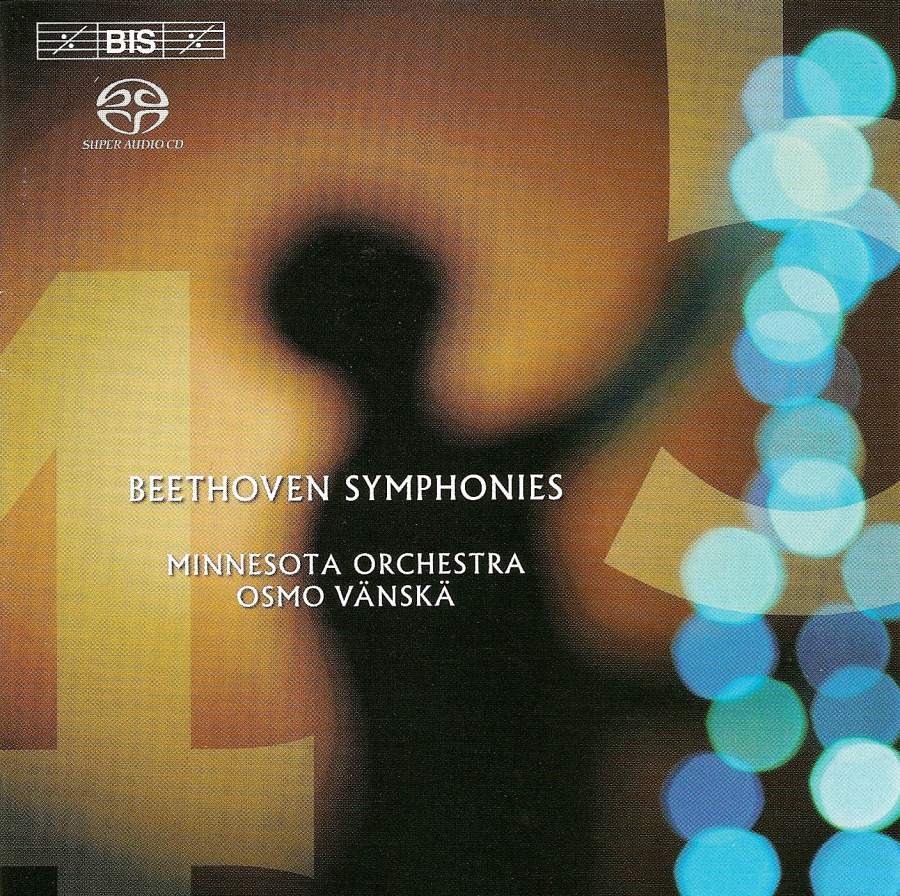
Symphonies Nos 4 and 5
Minnesota Orchestra / Osmo Vänskä
BIS
Of particular interest is the skill with which Vänskä keeps the bass line, and thus the music’s harmonic contour, continuously in view, never easy to do given the ‘open’ nature of Beethoven’s scoring...
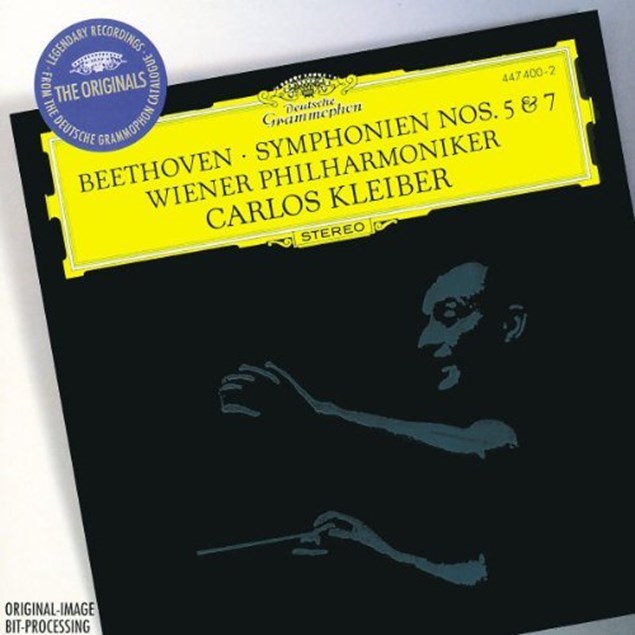
Symphonies Nos 5 & 7
Vienna Philharmonic Orchestra / Carlos Kleiber
DG
It is interesting to reflect that in 1974 there was not a single entry under the name 'Kleiber, Carlos' in The Gramophone Classical Record Catalogue. 'Kleiber, Erich': certainly. Among other things, he had recorded a famous Beethoven Fifth in 1953 (Decca, 9/87). I still remember the sinking feeling I experienced – a mere tiro reviewer on Gramophone – when I dropped into the post-box my 1000-word rave review (they had asked for 200) of what struck me as being one of the most articulate and incandescent Beethoven Fifths I had ever heard...
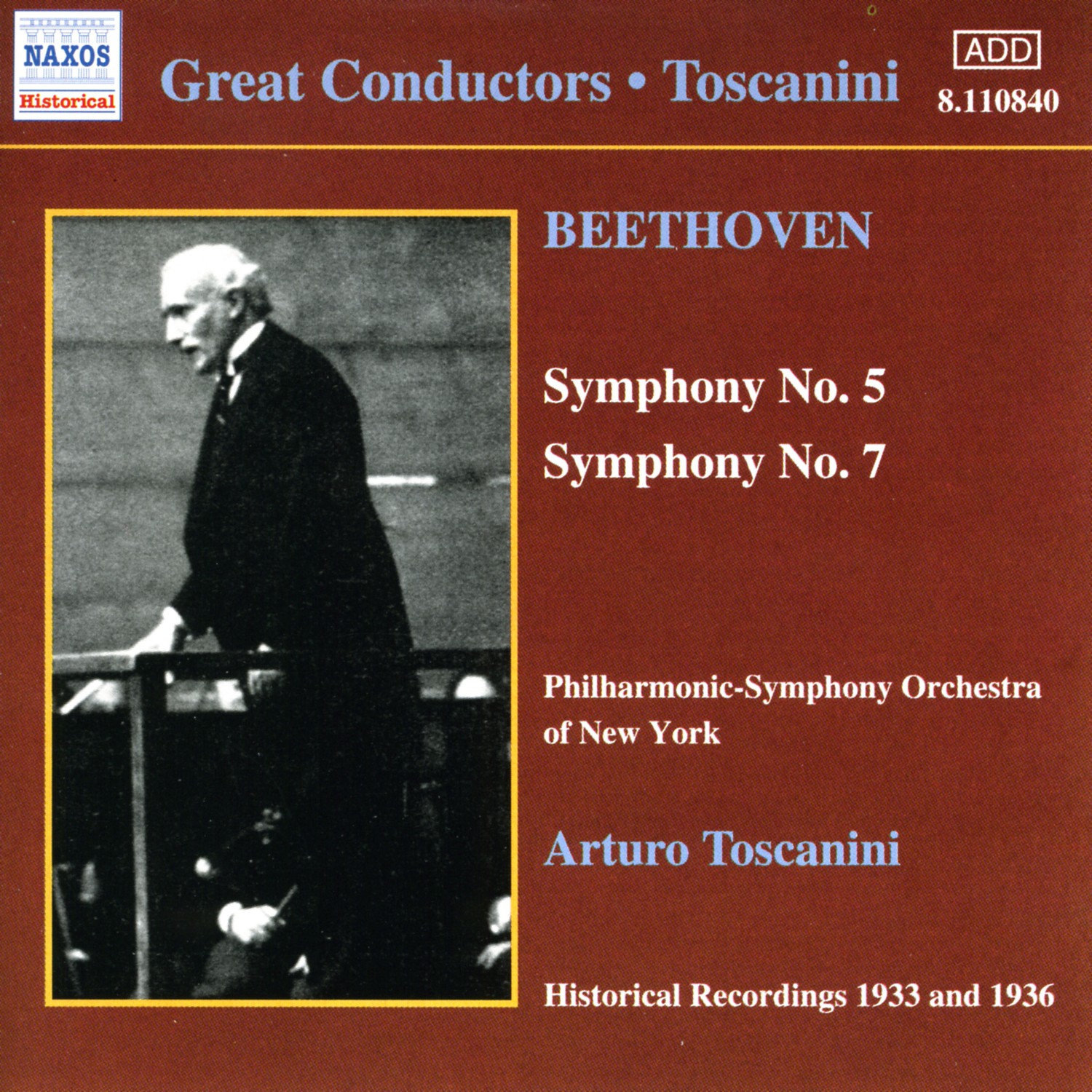
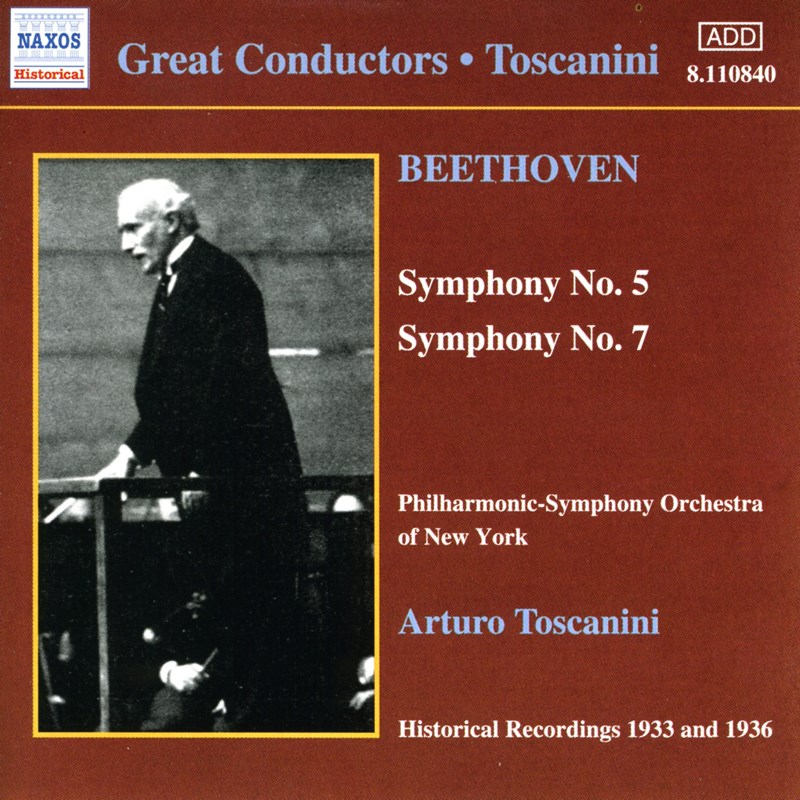
Symphonies Nos 5 & 7
New York Philharmonic Symphony Orchestra / Arturo Toscanini
Naxos
There are numerous Toscanini Fifths in public or private circulation‚ at least four of them dating from the 1930s. This one is lithe‚ dynamic and consistently commanding...
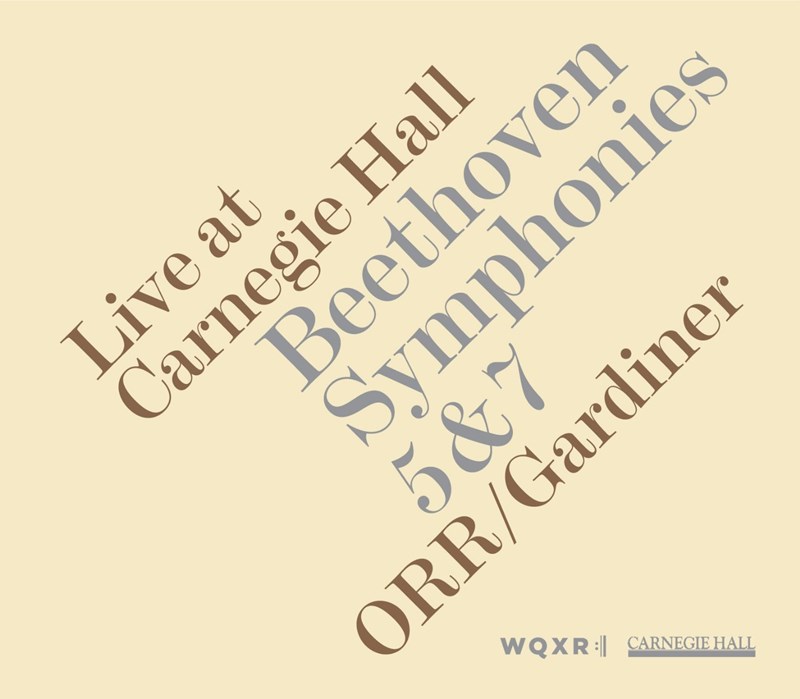
Symphonies Nos 5 & 7
Orchestre Révolutionnaire et Romantique / John Eliot Gardiner
SDG
So palpable is the excitement of these live performances that it almost comes as a shock that the applause has been excised. I was out of my seat at the end of the Seventh and I can only assume that a patch was made of the final pages, because no audience could conceivably have contained itself...
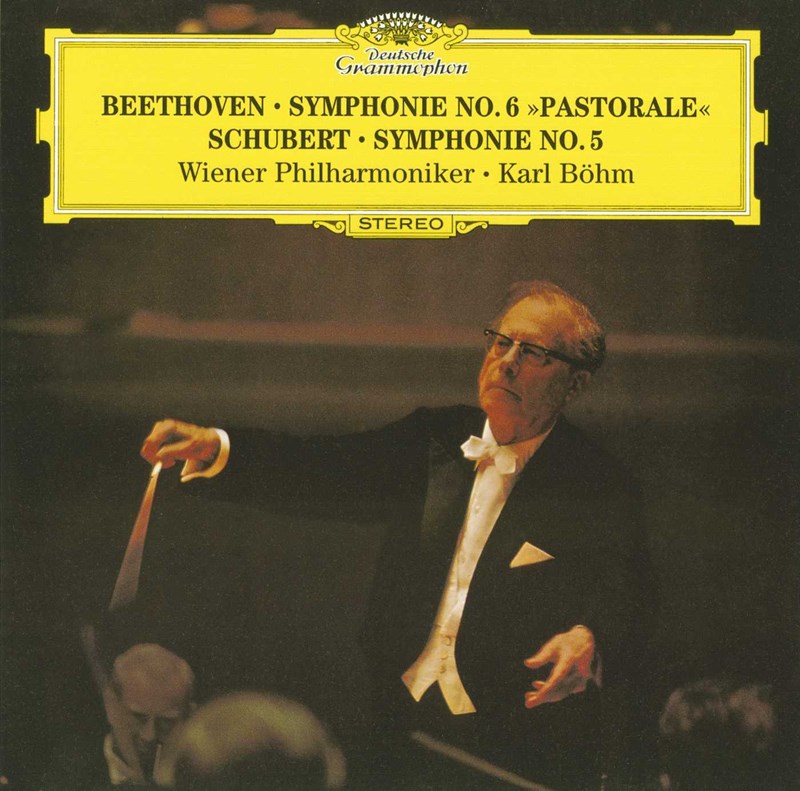
Symphony No 6
(Coupled with Schubert's Symphony No 5) Vienna Philharmonic Orchestra / Karl Böhm
DG
Karl Böhm’s Beethoven is a compound of earth and fire. His VPO recording of Beethoven’s Sixth of 1971 dominated the LP catalogue for over a decade, and has done pretty well on CD on its various appearances. His reading is generally glorious and it remains one of the finest accounts of the work ever recorded...
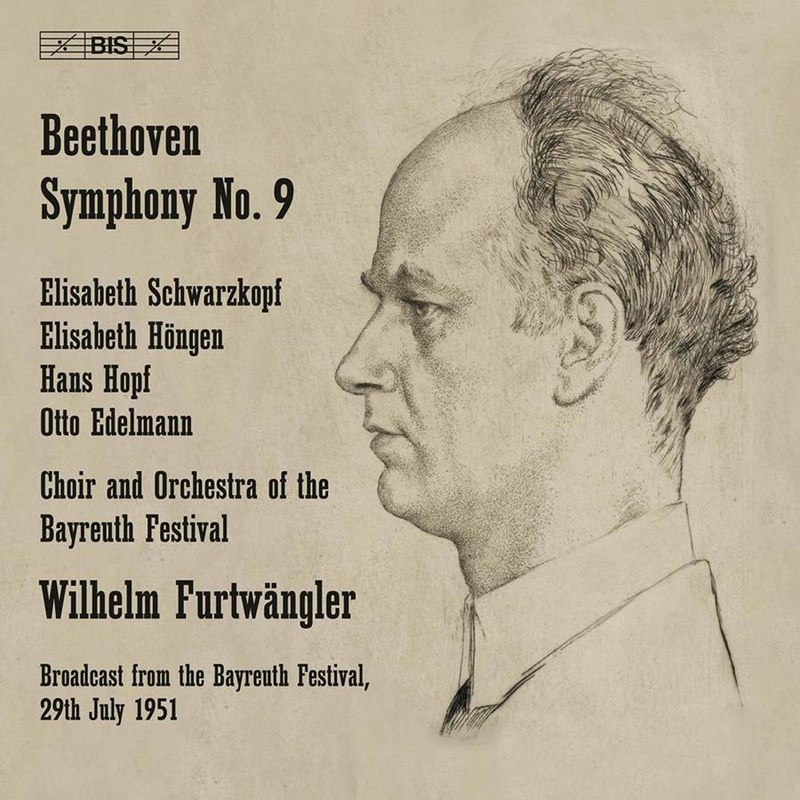
Symphony No 9
Live at Bayreuth Festspielhaus, Germany, 7/29/1951
Elisabeth Schwarzkopf sop Elisabeth Höngen alto Hans Hopf ten Otto Edelmann bass Festspielorchester der Bayreuther Festspiele / Wilhelm Furtwängler
BIS
Wilhelm Furtwängler’s way with Beethoven’s Choral Symphony approximates a shared ritual. It is quite literally spellbinding, whether in the slowly clearing mists and rocky ravines of the first movement, the Dionysian dancing of the second, the sublime sweetness and stillness of the third or the wild vicissitudes of mood and execution in the choral finale, where following the biblical-sounding low string recitatives at the beginning and a long, suspenseful pause, Furtwängler ushers in the ‘Ode to Joy’ as if from the far distance...
Chamber
Complete String Quartets
Quartetto Italiano
Decca
Overall, these performances still strike a finely judged balance between beauty and truth, and are ultimately more satisfying and searching than most of their rivals...
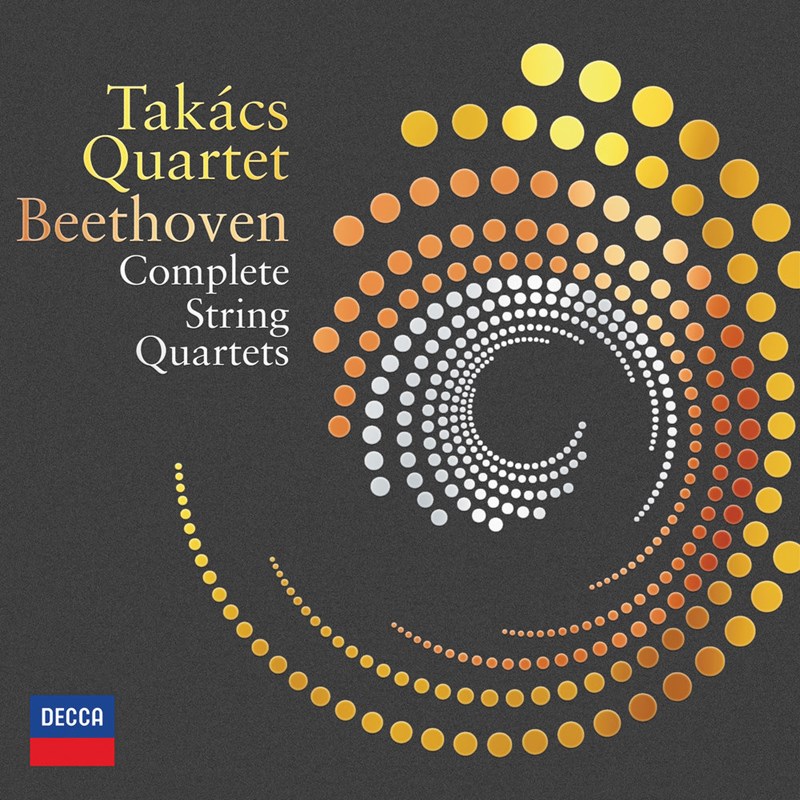
String Quartets, Vols 1-3
Takács Quartet
Decca
More probing than the pristine Emersons or Alban Bergs (live), more refined than the gutsy and persuasive Lindsays, and less consciously stylised than the Juilliards (and always with the historic Busch Quartet as an essential reference) – at no point did I feel the Takács significantly wanting. They do Beethoven proud and no one could reasonably ask for more. Rob Cowan (May 2005)
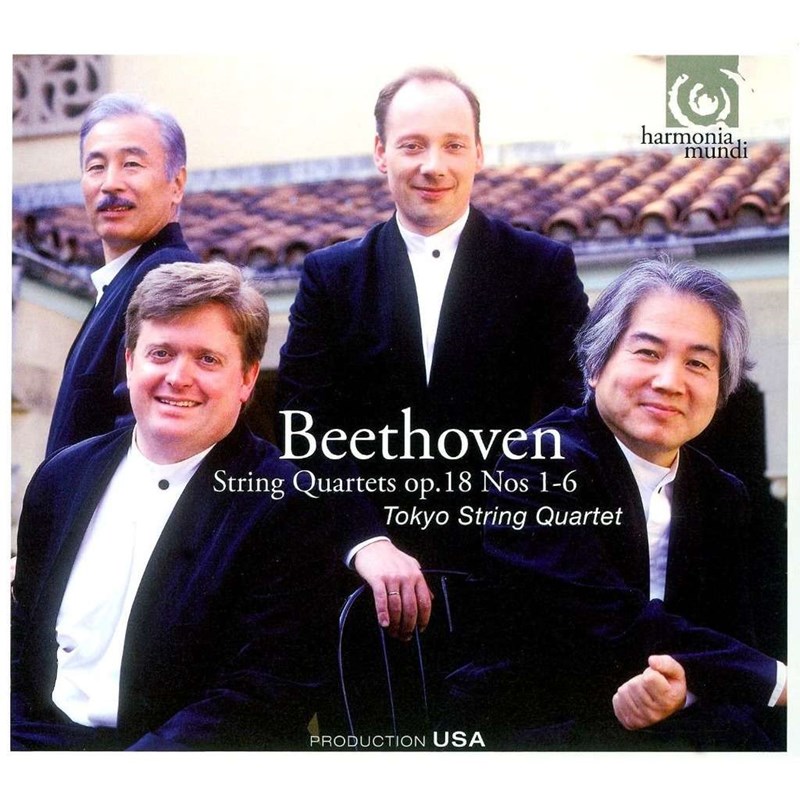
String Quartets, Op 18
Tokyo Quartet
Harmonia Mundi
Few ensembles have characterised the A major’s cantering first idea as happily as the Tokyos do here, while the ethereal and texturally variegated middle movements anticipate the very different world of Beethoven’s “late” quartets. Beautifully blended recordings, too: if you’re after a top-ranking digital set of Op 18, you couldn’t do better...
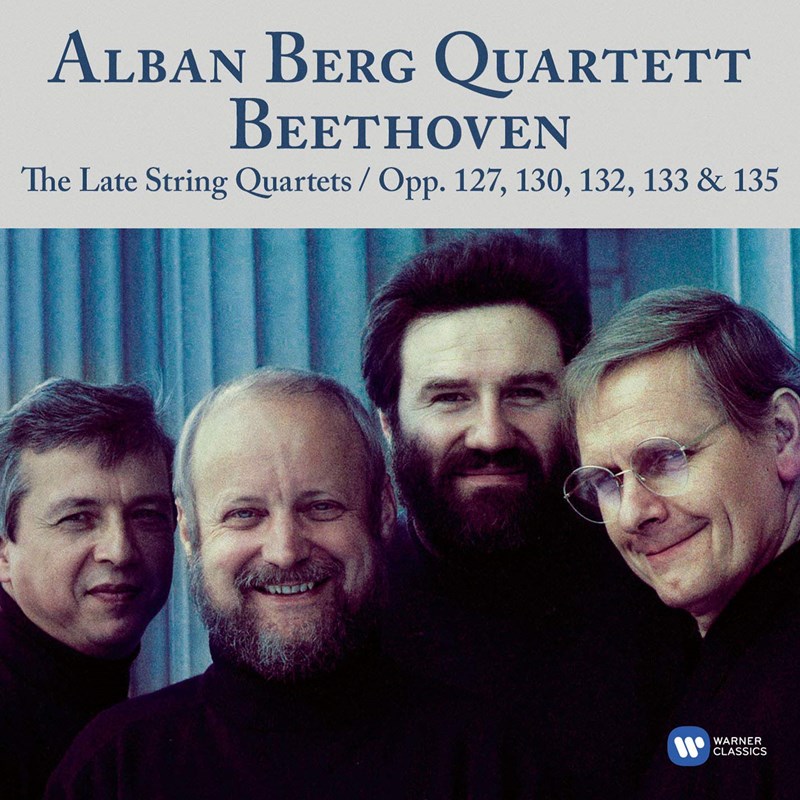
Late String Quartets
Alban Berg Quartett
Warner Classics
The 1984 Gramophone Award in the chamber-music repertory went to the Lindsay Quartet's set of the late Beethoven quartets and it is a measure of the inexhaustibility of these great works that they have also claimed 1985's vote. The Alban Berg are the first to give us them on CD, and the medium certainly does justice to the magnificently burnished tone that the Alban Berg command, and the perfection of blend they so consistently achieve. In terms of sheer technical address, tonal finesse and balance, they enjoy a superiority over almost every other ensemble of their generation. (Indeed some listeners, particularly those brought up on the Busch or Vegh Quartets, may find the sheer polish of their playing gets in the way, for this can be an encumbrance; late Beethoven is beautified at its peril). But so far as sheer quartet playing is concerned, it is likely to remain unchallenged. Robert Layton (1985)
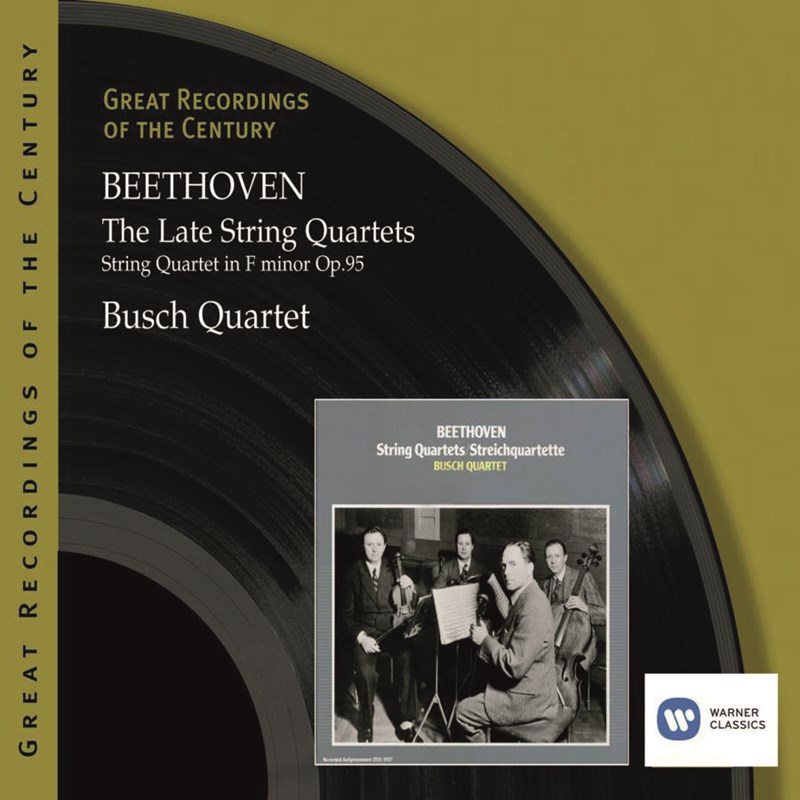
Late String Quartets
Busch Quartet
Warner Classics
Up to a point the length of a review should denote importance – and were this the case, this notice ought to occupy many pages! This is an indispensable set – as revealing of the Beethoven quartets as Schnabel is of the sonatas, and if it were ever correct to speak of any performances as definitive, this is an instance when one might be tempted to do so. The Busch's Beethoven set standards by which successive generations of quartets were judged – and invariably found wanting! Their insight and wisdom, their humanity and total absorption in Beethoven's art has to my mind never been surpassed and only sporadically matched, even by such modern ensembles as the Vegh and the Lindsay!
These performances are so superb that despite their sonic limitations I still think it possible to recommend them to younger non-specialist collectors, even in these days of the Compact Disc. Of course, there are the occasional portamentos that were in general currency in the 1930s but are unfashionable now, but I can't say that I find them irksome. Whatever set you may already have, be it the Hollywood, the Lindsay, the Alban Berg or the Quartetto Italiano, you will not regret adding this to your collection. Robert Layton (November 1985)
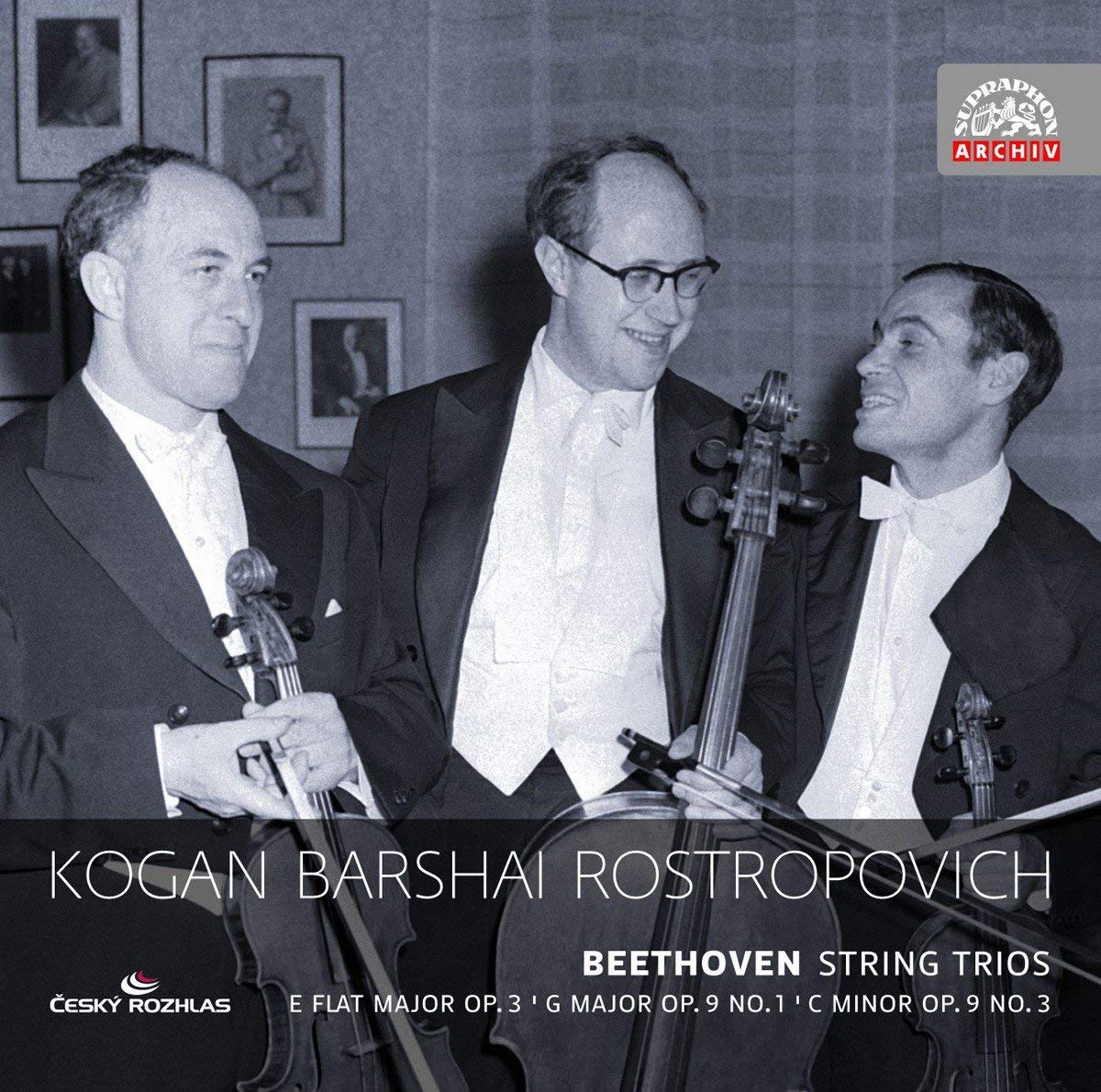
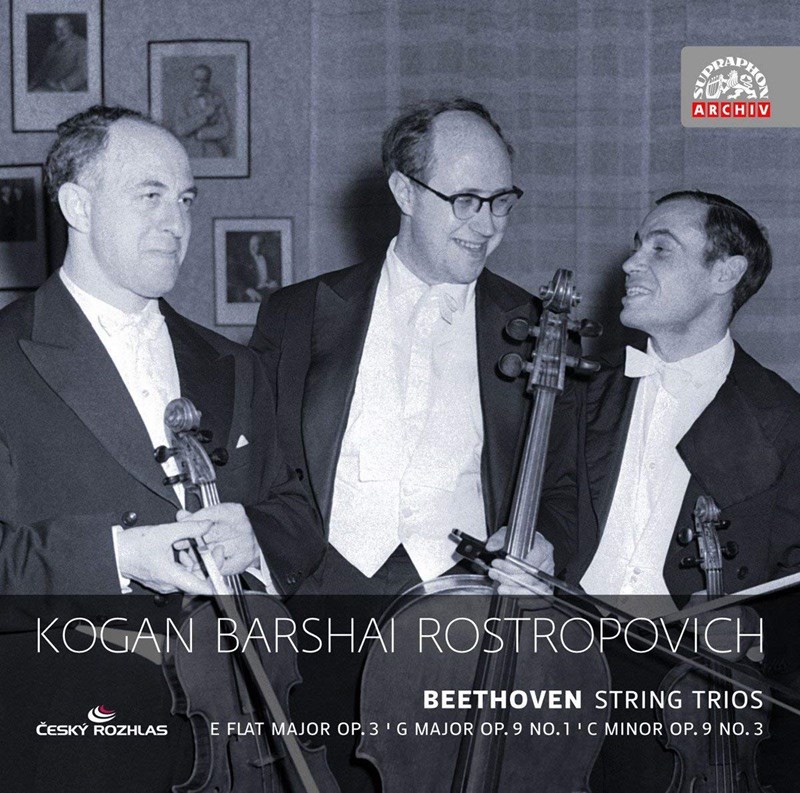
String Trios, Op 9 No 1, Op 9 No 3, Op 3
Leonid Kogan vn Rudolf Barshai va Mstislav Rostropovich vc
Supraphon
Here is the latest instalment of Supraphon’s issue of classic concerts given in Prague in the 1950s and ’60s. This one dates from June 2, 1960, at the Prague Spring International Music Festival. And what a line-up: three supreme Soviet artists, for whom Czechoslovakia represented a taste of freedom while the West remained out of bounds. And there’s freedom aplenty in these vigorous, highly charged performances: just sample the concluding Presto of Op 9 No 1 or the opening movement of the E flat major Trio, Op 3. These are strong-jawed readings with a great sense of purpose and, even when some of the details are a bit shaky (and tuning and ensemble less than pristine), they are never less than compelling...
Read the full review in the Reviews Database
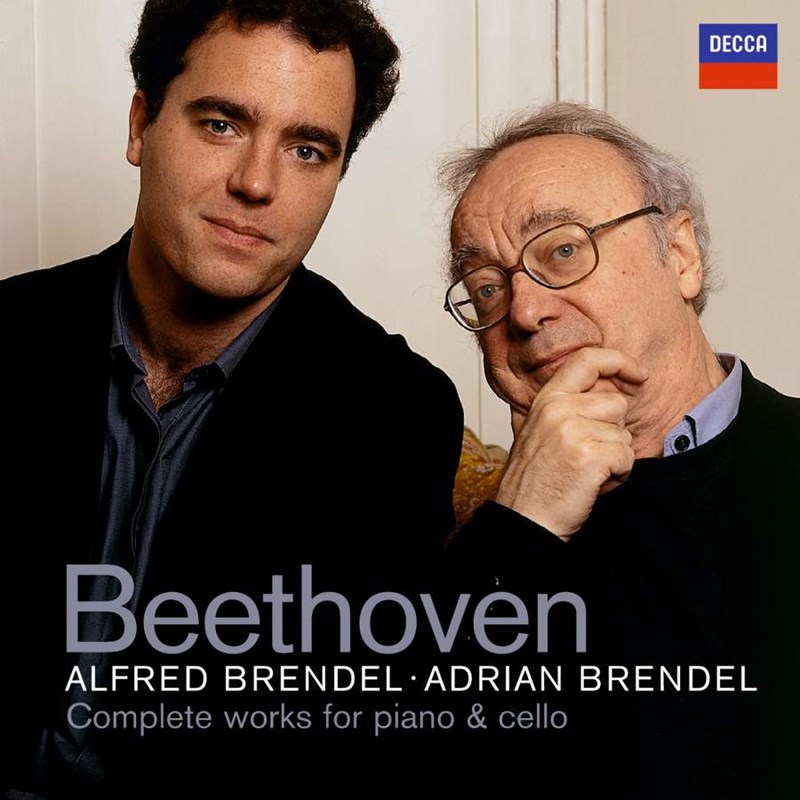
Complete Works for Cello & Piano
Adrian Brendel vc Alfred Brendel pf
Philips
The Brendels, father and son, give us Beethoven’s complete works for piano and cello. You’ll have to search long and hard to hear performances of a comparable warmth and humanity or joy in music-making. Sumptuously recorded and lavishly presented (including engaging family photographs), the sonatas are offered in a sequence that gives the listener an increased sense of Beethoven’s awe-inspiring scope and range...
Read the full review in the Reviews Database
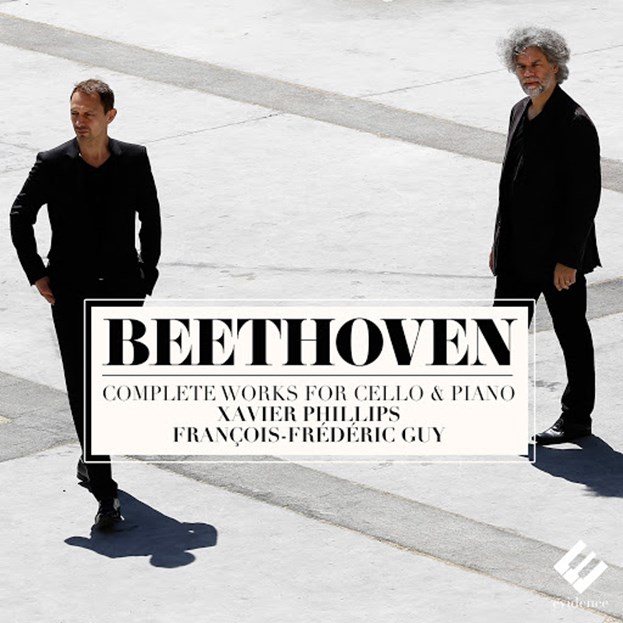
Complete Works for Cello & Piano
Xavier Phillips vc François-Frédéric Guy pf
Evidence Classics
This is the third instalment in François-Frédéric Guy’s traversal of Beethoven and the first to delve into the chamber music. He is well matched in intellect, musicianship and temperament by cellist Xavier Phillips as they journey from the ridiculous (the Variations on ‘See the Conqu’ring Hero Comes’, in which Guy dispatches the virtuoso piano part with complete aplomb, to delectable effect) to the sublime (the Op 102 Sonatas). The two sets of variations on themes from Mozart’s Magic Flute are a very different proposition from the ‘Conqu’ring Hero’ but just as persuasive, with the Op 66 set given a particularly sparkling reading...
Read the full review in the Reviews Database
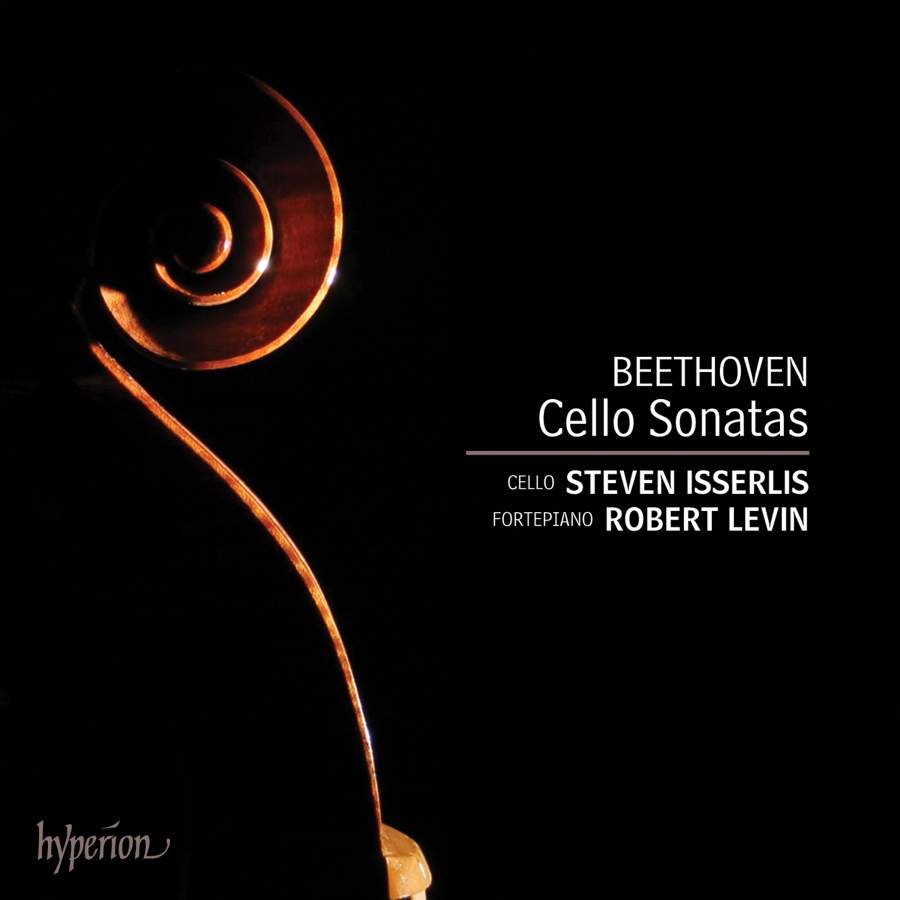
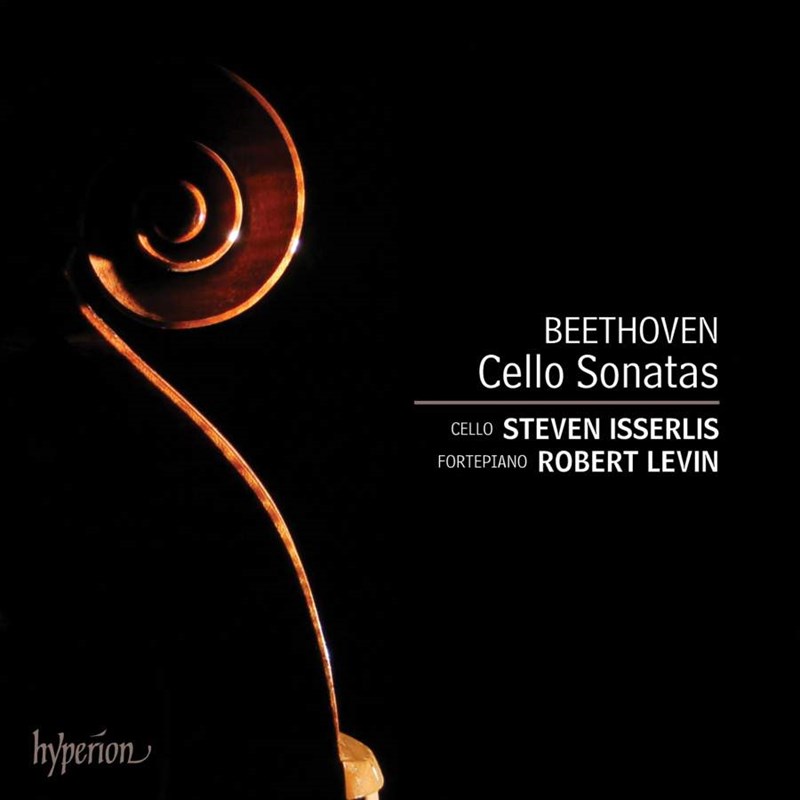
Cello Sonatas
Steven Isserlis vc Robert Levin fp
Hyperion
A cellist who tends towards introversion; a fortepianist who tends the other way. Put them together and something magical happens within the tensions they engender. Beethoven’s directions for the introduction to Op 102 No 1 are explicit – Andante, softly singing, sweetly, tenderly – and Steven Isserlis, playing a gut-strung 1726 Stradivarius, invokes its beauty in hushed, withdrawn tones. Robert Levin, the moderator on Paul McNulty’s copy of a 1805 Walter & Sohn instrument equalising dynamics, matches him in essence and aura. Think of repose in C major for 27 bars until the switch to the main movement; and the sudden shock of a fortissimo chord in A minor is ruder than it would be on a modern piano. No politesse from Levin. What follows is an untrammelled Allegro vivace, two-in-a-bar as marked, tempo changes graphic, every sforzando or accent stabbing the texture, Isserlis unfurling the vehemence also implicit in his lines...
Read the full review in the Reviews Database
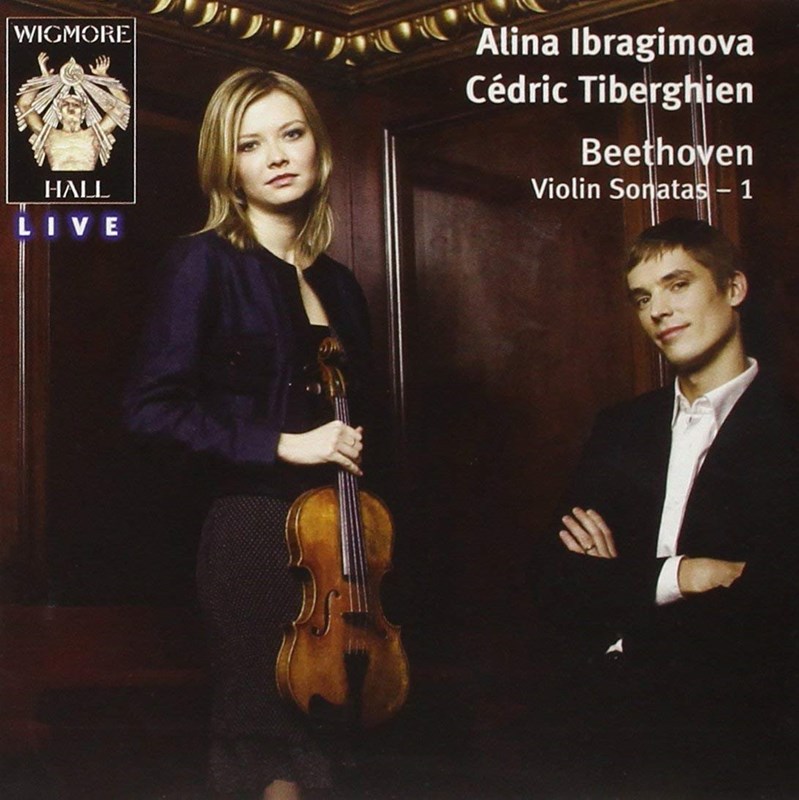
Violin Sonatas, Vols 1-3
Alina Ibragimova vn Cédric Tiberghien pf
Wigmore Hall Live
Review of Vol 3: This third disc concludes Ibragimova and Tiberghien’s live set of the Beethoven sonatas. The qualities of the earlier instalments (8/10, 12/10) – polished technique, spontaneity and deep engagement with the music – are as strongly apparent here. One small illustration will demonstrate the special character of these performances. The fourth of the final variations of Sonata No 6 begins with three unaccompanied violin chords played piano. Often, violinists seem embarrassed by these, or else create a somewhat eccentric effect. Not so Alina Ibragimova, who gives them the character of tentative, fearful steps into the unknown, to be reassured by Tiberghien’s suave reply. The following minor-key variation shows how both players can bring flexibility and fluidity to their performance, with the confidence that they will be sympathetically accompanied.
By comparison, the excellent studio set by Isabelle Faust and Alexander Melnikov appears more studied. In the middle section of Sonata No 3’s Adagio, each of their perdendoso phrases ends in a ghostly whisper – a wonderful effect. Ibragimova and Tiberghien don’t attempt anything so extreme but their playing has a powerful sense of progress through the series of modulations, born, I imagine, out of the intensity of live performance. In the finales of this sonata and of the Kreutzer, Faust and Melnikov are slightly faster and more brilliant but Tiberghien and Ibragimova, with superb poise and control, appear more carefree and joyful. And their account of the Kreutzer’s first movement, with its Furtwängler-like broadening at the climax of the coda, unmistakably exposes the music’s portrayal of emotional turmoil. Duncan Druce (July 2011)
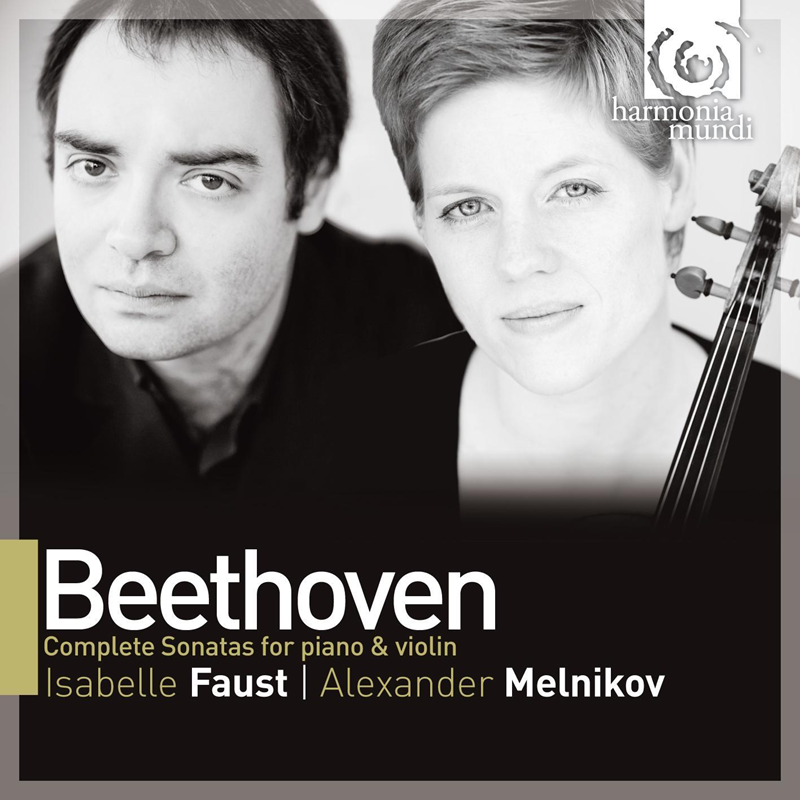
Complete Violin Sonatas
Isabelle Faust vn Alexander Melnikov pf
Harmonia Mundi
The musical sleight of hand used by these expert players to focus the very different character of each sonata is in itself cause for wonder. Though quite different as musical personalities – Faust, subtle and quietly formal; Melnikov, a master of the meaningful pause – the combination of the two fires a laser between the staves. Fleetness and elegance are very much to the fore in the Op 12 set, beauty of tone, too, especially in the First Sonata...
Read the full review in the Reviews Database
Instrumental
Complete Piano Sonatas
Igor Levit pf
Sony Classical
A highlight is the Waldstein, the repeated C major left-hand chords underpinning a tensile energy that runs through the entire opening movement. But it’s not about momentum: Levit colours and shapes it with such finesse – withdrawing the sound to a whisper and then building to a great billowing wave. The Adagio molto is remarkable in the way he stills the mood, conjuring an atmosphere that sounds almost like a postscript to Schubert’s Winterreise. As the music gradually comes back to life his finale is engagingly ebullient...
☆
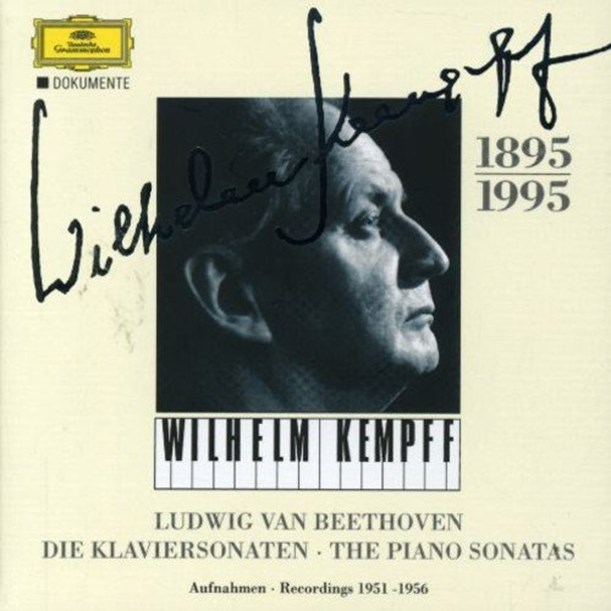
Complete Piano Sonatas
Wilhelm Kempff pf
DG mono
Wilhelm Kempff was the most inspirational of Beethoven pianists. Those who have cherished his earlier stereo cycle for its magical spontaneity will find Kempff’s qualities even more intensely conveyed in this mono set, recorded between 1951 and 1956. Amazingly the sound has more body and warmth than the stereo, with Kempff’s unmatched transparency and clarity of articulation even more vividly caught, both in sparkling Allegros and in deeply dedicated slow movements. If in places he’s even more personal, some might say wilful, regularly surprising you with a new revelation, the magnetism is even more intense, as in the great Adagio of the Hammerklavier or the final variations of Op 111, at once more rapt and more impulsive, flowing more freely. The bonus disc, entitled ‘An All-Round Musician’, celebrates Kempff’s achievement in words and music, on the organ in Bach, on the piano in Brahms and Chopin as well as in a Bachian improvisation, all sounding exceptionally transparent and lyrical. Fascinatingly, his pre-war recordings of the Beethoven sonatas on 78s are represented too. Here we have his 1936 recording of the Pathétique, with the central Adagio markedly broader and more heavily pointed than in the mono LP version of 20 years later.
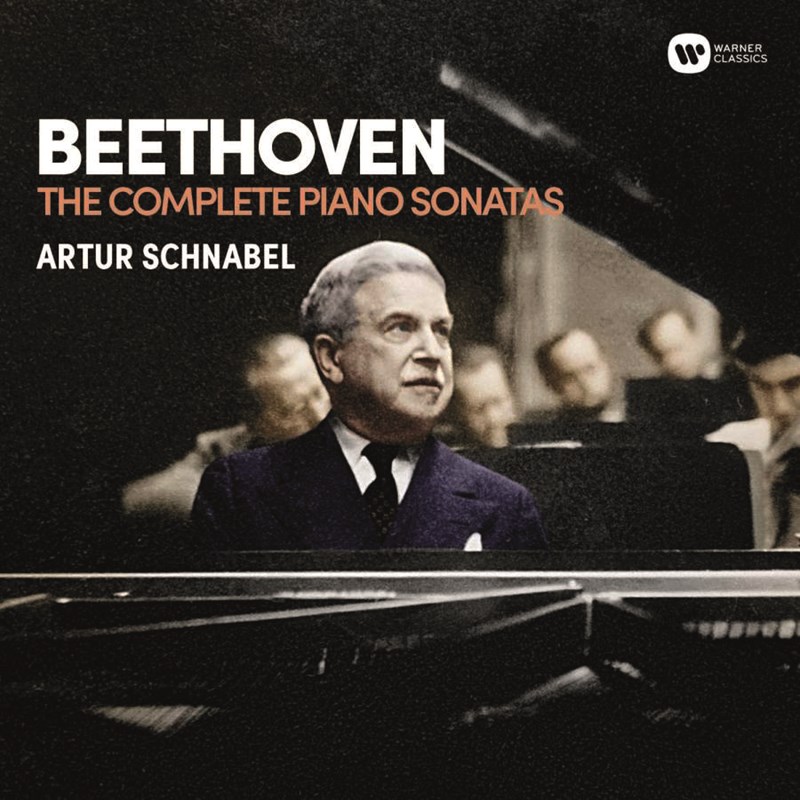
Complete Piano Sonatas
Artur Schnabel pf
EMI/Warner/Musical Concepts
Schnabel was almost ideologically committed to extreme tempos; something you might say Beethoven’s music thrives on, always provided the interpreter can bring it off. By and large he did. There are some famous gabbles in this sonata cycle, notably at the start of the Hammerklavier, with him going for broke. In fact, Schnabel also held that ‘It is a mistake to imagine that all notes should be played with equal intensity or even be clearly audible. In order to clarify the music it is often necessary to make certain notes obscure.’ If it’s true, as some contemporary witnesses aver, that Schnabel was a flawless wizard in the period pre-1930, there’s still plenty of wizardry left in these post-1930 Beethoven recordings. They are virtuoso readings that demonstrate a blazing intensity of interpretative vision as well as breathtaking manner of execution. Even when a dazzlingly articulate reading like that of the Waldstein is home and dry, the abiding impression in its aftermath is one of Schnabel’s (and Beethoven’s) astonishing physical and imaginative daring. And if this suggests recklessness, well, in many other instances the facts are quite other, for Schnabel has a great sense of decorum. He can, in many of the smaller sonatas and some of the late ones, be impeccably mannered, stylish and urbane. Equally he can be devilish or coarse. At the other extreme, he’s indubitably the master of the genuinely slow movement. For the recorded sound, there’s nothing that can be done about the occasional patch of wow or discoloration but, in general, the old recordings come up very freshly.
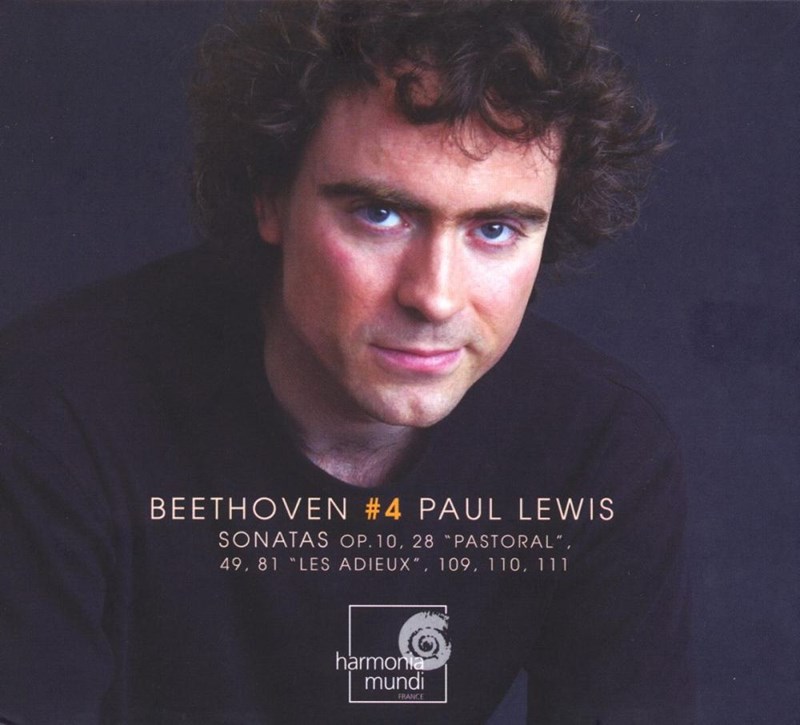
Complete Piano Sonatas
Paul Lewis pf
Harmonia Mundi
Review of Vol 4: Only an extended essay could do justice to the fourth and final volume of Paul Lewis’s Beethoven sonata cycle. But space, sometimes the critic’s friend, here his enemy, forbids much beyond generalisation when faced with such overall mastery and distinction. Like me, you may well cherish your beloved sets by Schnabel, Kempff and Brendel (to name but three), but Lewis surely gives you the best of all possible worlds; one devoid of idiosyncrasy yet of a deeply personal musicianship.
Where else can you hear Op 10 No 2’s madcap finale given with such unfaltering lucidity and precision? Try Op 28’s finale for an ultimate pianistic and musical finesse or the opening Allegro where Lewis makes you conscious of how the music’s gracious and mellifluous unfolding is momentarily clouded by mystery and energised by drama. In such hands the final pages of Op 111 do indeed become “a drift towards the shores of Paradise” (Edward Sackville-West) and throughout all these performances you sense how “the great effort of interpretation” (Michael Tippett) is resolved in playing of a haunting poetic commitment and devotion. Such playing is hardly for lovers of histrionics or inflated rhetoric, but rather for those in search of other deeper, more refreshing attributes, for Beethoven’s inner light and spirit. Somehow Lewis’s quiet and distinctive voice can lift even the most familiar phrase on to another sphere and his playing throughout, shorn of accretion, makes all these sonatas shine with their first radiance and eloquence. Admirably recorded, this three-disc set is crowned with a scholarly and illuminating essay by Jean-Paul Montagnier. Bryce Morrison (June 2008)
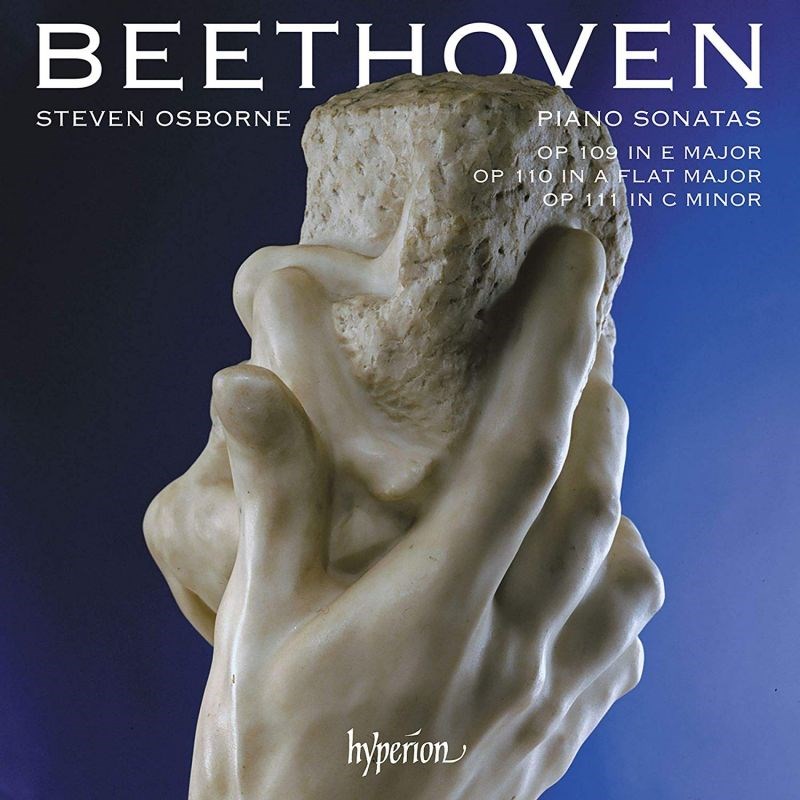
Piano Sonatas Nos 30-32
Steven Osborne pf
Hyperion
I was much looking forward to getting my hands on this CD, having chosen Steven Osborne’s previous Beethoven sonata disc, featuring a dangerous and profound Hammerklavier, as my Critics’ Choice in 2016. From the first note, Osborne’s kinship with the composer is everywhere apparent and he conveys the vast contrasts of the last three sonatas unerringly. When I was doing a Building a Library on Op 109 last year for BBC Radio 3, I was looking for a combination of wonder and fantasy that didn’t tip over into late Romanticism in the first movement, fearsome firepower without edge in the Prestissimo and a Classicism to the theme of the finale’s variations. And that is exactly what we get here...
Read the full review in the Reviews Database
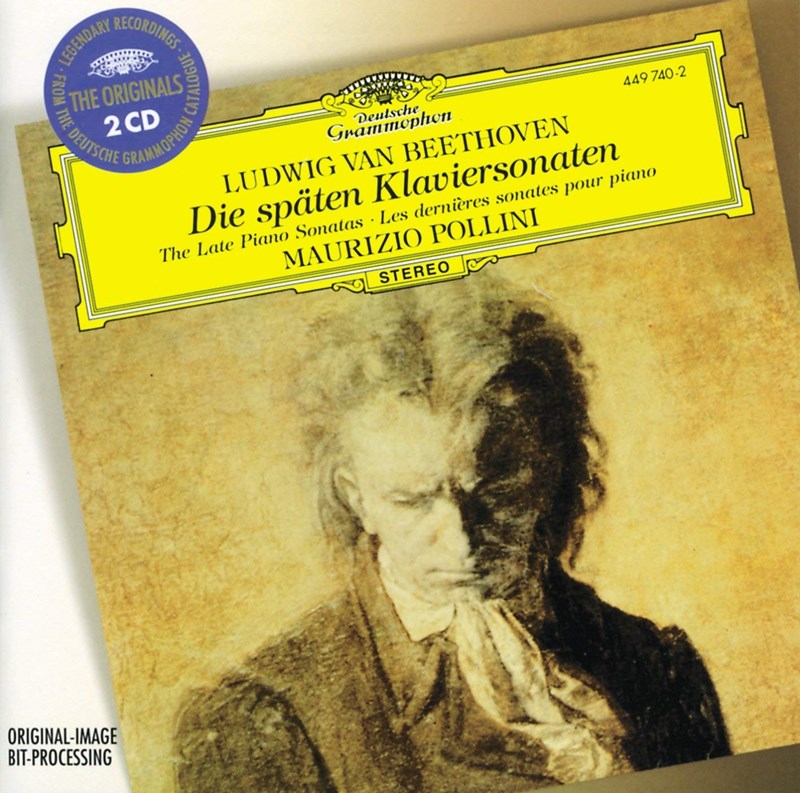
Piano Sonatas Nos 28–32
Maurizio Pollini pf
DG
Make no mistake, this is playing of the highest order of mastery. Indeed, I am not sure that Pollini’s account of the Hammerklavier is not the most impressive currently before the public, though the instant such thoughts are penned, the noble performances of Eschenbach, Arrau, Brendel and Ashkenazy spring to mind. Yet not even beside such giants as these as well as Solomon, Kempff and perhaps even Schnabel does Pollini’s achievement pale.
If Schnabel’s Hammerklavier was not one of the triumphs of his pioneering cycle, its surface roughness worked in its favour in that the listener was never distracted from the spirit by the beauty of the letter. Pollini’s account is simply staggering, for if there are incidental details which are more tellingly illuminated by other masters, no performance is more perfect than this new version. Superb rhythmic grip, sensitivity to line and gradation of tone, a masterly control of the long paragraph; all these are features of this remarkable reading. In the slow movement the sublime outpouring of lyrical feeling beginning at bar 27 shows Pollini’s peerless sense of line and eloquence of spirit, though memories of Arrau who fashions this passage with great poetry are not banished. John Ogdon’s account has a splendidly withdrawn feeling at this point and a raptness and tranquillity that I greatly admire. No one, however, quite matches Pollini’s stunning finale: its strength and controlled power silence criticism. There is no doubt, I think, that this is great piano-playing. Robert Layton (January 1978)
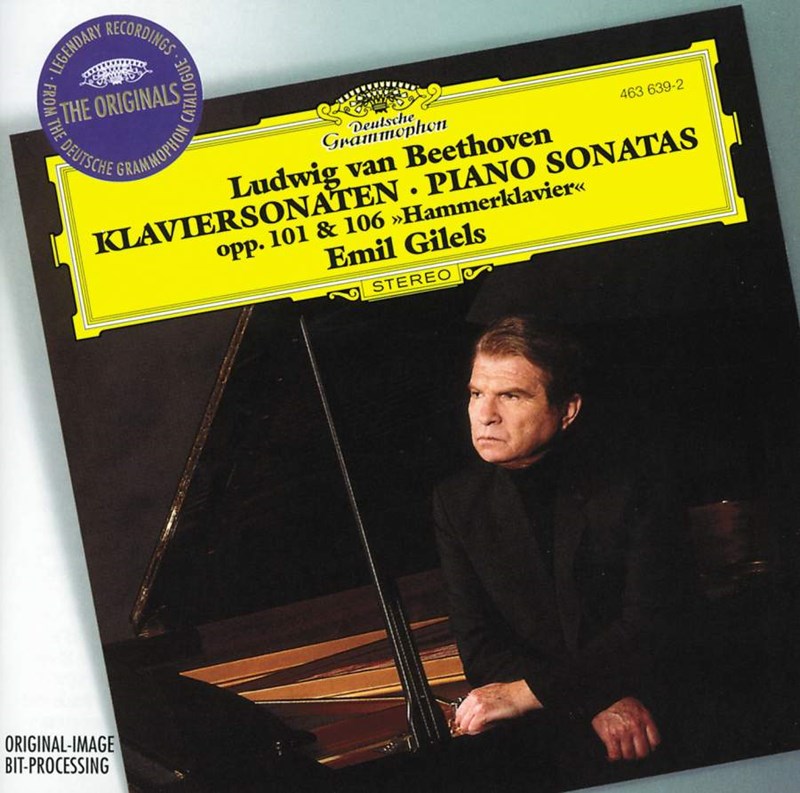
Piano Sonata No 29, 'Hammerklavier'
Emil Gilels pf
DG
Few works of music stimulate active and stressful thinking - anxious thought complementing the music's search for resolvable sounds - than the Hammerklavier. Nor is it a work which is easily mastered physically. (Pollini, on DG, strikes me as being too obviously masterful; Brendel, on Philips, less so.) Of all pianists, Schnabel (on his 1935 HMV recording) perhaps comes closest to conveying a reckless, all-or-nothing mood, allied to a terrier-like grasp of argument and a sure instinct for the work's persistent striving for release into uninhibited song. Yet there are scrambles and mistakes in his performance which were avoided, with minimal loss to the music's headlong impetus, in the famous 1956 Solomon recording, whose absence from the catalogue is much to be regretted. Like Solomon, Gilels gives us an outstanding reading of the vast slow movement. The tempo is spacious, apt to Gilels's mastery of the music's anisometric lines and huge paragraphs, paragraphs as big as an East Anglian sky. Few pianists since Solomon have come near to matching Gilels's ability to touch off the rapt, disburdened beauty of these lofty Beethovenian cantilenas.
The search for lyric release is something which Gilels seems particularly to stress. The arrival – introit, rathe r- of the finale's D major subject, Tovey's "Still, Small Voice" after the Fire, is here a moment that is specially cherishable, the more so as the fugue and the subsequent aggressive peroration are played by Gilels with a directness and lucidity which contrasts interestingly with his sophisticated and equivocal treatment of the opening Allegro movement. There, we have a sense of impetus and attack (Gilels's sheer pianistic command compensating for a tempo 42 minims a minute below Beethoven's startling and plausible minim = 138) though when we reach the gracious second subject in G, rhythmic motion is not so much suspended as upstaged by the first intimations of the music's surprising capacity for feminine songfulness.
The Scherzo, as befits its character, is also equivocal; the playing of the Trio and the dance's quietly elaborated reprise is a rare treat for the ear, though the tempo seems slow for so obviously ironic a piece. It takes a major pianist standing outside the Viennese tradition to see the volatile and ageing Beethoven subsuming gamesome Classical ironies in Romantic pathos and a feeling of personal travail.
There is, though, nothing effete about the totality of Gilels's reading. Formidably in command of the music, he neither subjects the notes to his virtuosic will, nor demeans his own technique by mimetic attempts at audible disorder. Disturbingly aware, in the first movement, of what he suggests are unstable fancies informing the work's manic oscillations, Gilels proceeds to achieve a troubled coherence in the brilliantly executed coda of the finale where his extraordinary technique allows the music's evident ferocity to be tempered by Orphic assurance.
It is, in fine, an absorbing and ambiguous reading. At times it is a model of lucidity, arguments and textures appearing as the mechanism of a fine Swiss watch must do to a craftsman's glass; yet the reading is also full of subversive beauty, the finely elucidated tonal shifts confirming Charles Rosen's assertion that Beethoven's art, for all its turbulence, is here as sensuous as a Schubert song.
The recording is limpid and resolute, with something of the character and atmosphere of Wilhelm Kempff's celebrated recordings of this endlessly challenging, endlessly fascinating work. Richard Osborne (December 1983)
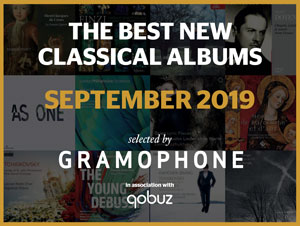
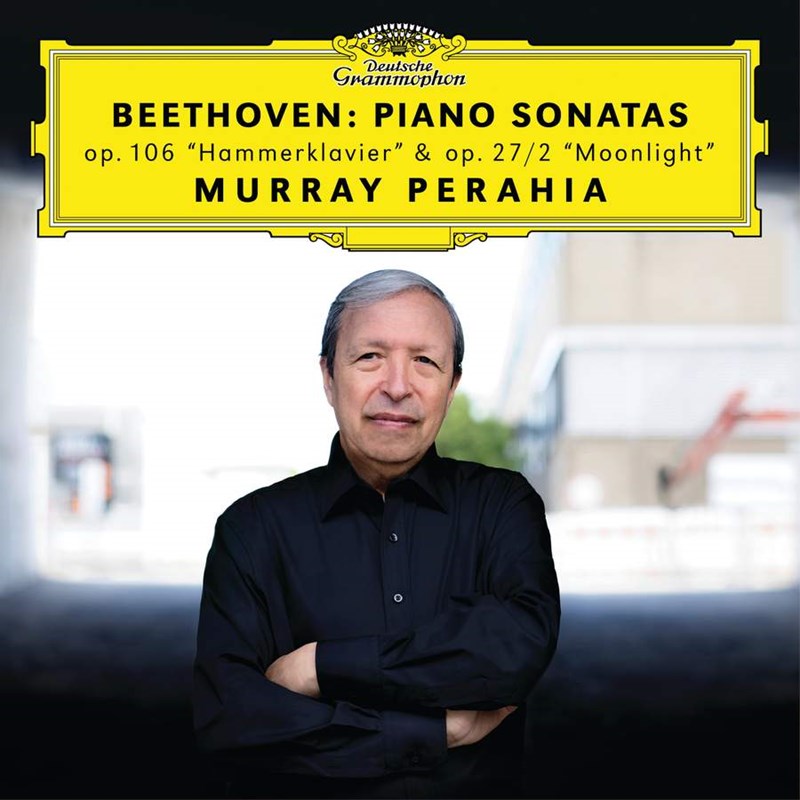
Piano Sonatas – Hammerklavier & Moonlight
Murray Perahia pf
DG
The first thing we should do in approaching this musically remarkable and, in terms of its exploration of the composer’s tempest-tossed inner life, extraordinarily fascinating addition to the Beethoven discography is banish all thoughts of moonlight.
A further assumption it might be useful to set aside, as we attend to what Murray Perahia calls ‘two of the most radically groundbreaking of the composer’s 32 piano sonatas’, is that the Hammerklavier is the more difficult of the two pieces. I’m not thinking here of the finger-wrenching challenge of actually delivering the Hammerklavier, something the unbridled fury of the finale of the earlier sonata interestingly presages. Rather, I’m thinking of the imaginative and technical challenges that the emotionally complex Sonata quasi una fantasia in the then alien key of C sharp minor presents to the player: first in seeking out its essence, then in distilling that essence on whatever keyboard circumstance or time provides. (As Charles Rosen observed, the sonata’s finale shredded the pianos of 1801 as surely as its opening movement troubles more modern ones.)...
Read the full review in the Reviews Database
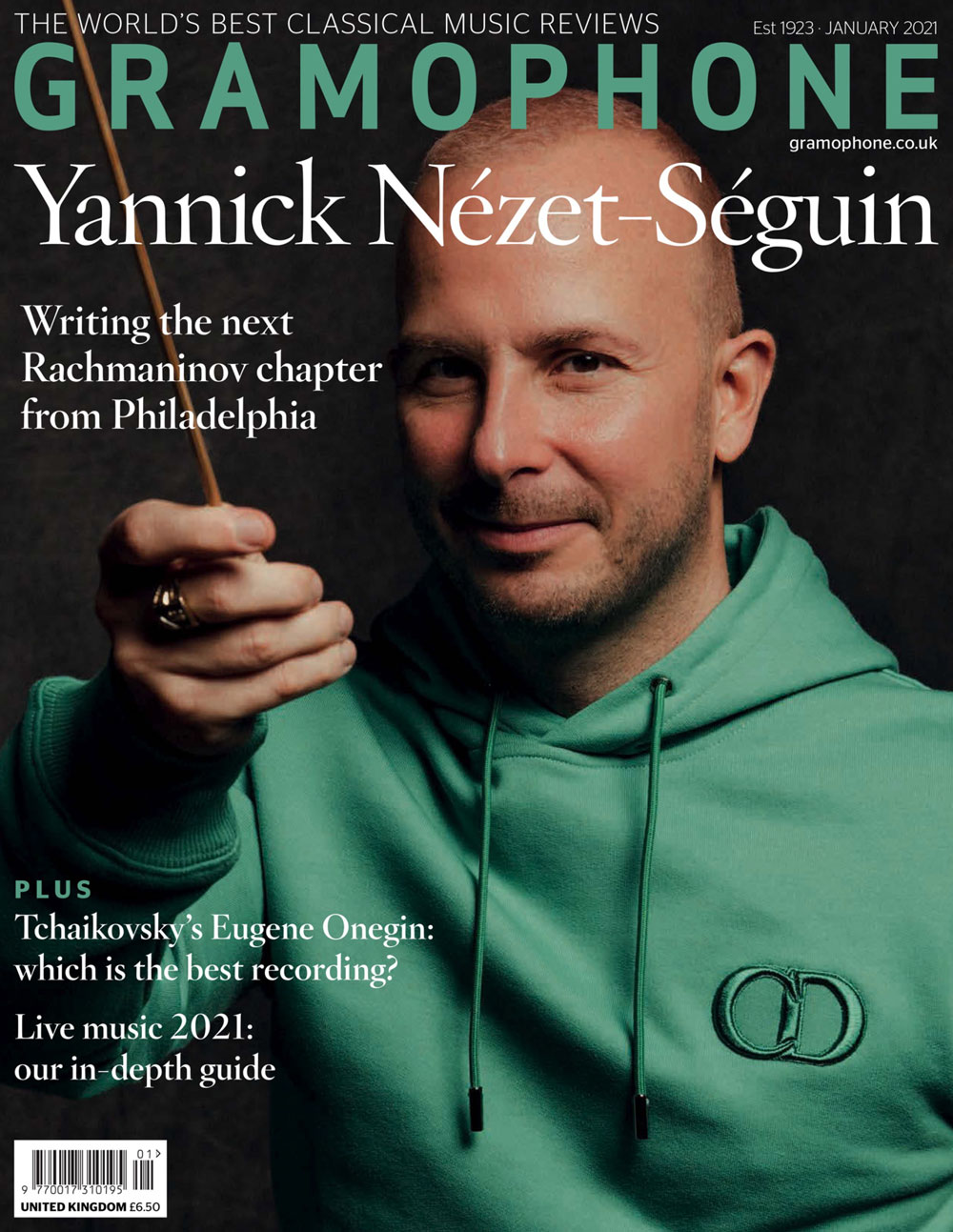

Diabelli Variations
Mitsuko Uchida pf
Decca
The clarity and warmth of the recording (from Snape Maltings) is as remarkable as the playing. It was rather startling to go back to my 1968 Kovacevich CD (Philips, 1/69, 8/90) – a long-treasured reference version, not only for me – and to find how dated the sound quality now seems. But I need to recover for a while before I can make level-headed comparisons. For the time being, the encounter with Uchida’s Diabellis is just too dazzling...
Vocal
Songs
Stephen Genz bar Roger Vignoles pf
Hyperion
The 26-year-old Erfurt-born baritone Stephan Genz is in the first bloom of his youthful prime. His Schumann Liederkreis, Op 24 (5/98) was the first recording to give serious warning of the distinctive lyric ardour and keen intelligence of his artistry; and now Beethoven’s setting of Goethe’s ‘Mailied’ (Op 52 No 4), with its lightly breathed, springing words, could have been written with Genz in mind...
Read the full review in the Reviews Database
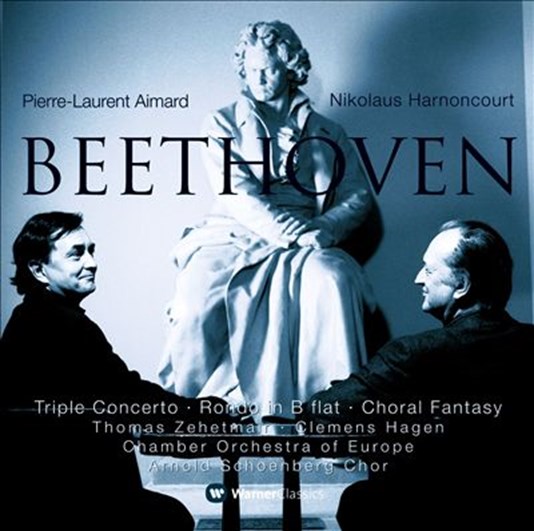
Choral Fantasia. Triple Concerto. Rondo for Piano & Orchestra
Pierre-Laurent Aimard pf Thomas Zehetmair vn Clemens Hagen vc Chamber Orchestra of Europe; Arnold Schoenberg Choir / Nikolaus Harnoncourt
Warner Classics
Listening to the opening tutti on this joyful new Triple Concerto, I could just picture Nikolaus Harnoncourt cueing his strings, perched slightly forwards, impatiently waiting for that first, pregnant forte. This is a big, affable, blustery Triple, the soloists completing the sound canvas rather than dominating it, a genuine collaborative effort. So beside the Beethovenian strut to this performance there is poetry too, as at 8’25” where Clemens Hagen wafts in with the principal theme underpinned by gently brushed strings. Then again the modulating sequences from 9’36”, so often crudely hammered home in rival versions, are stylishly shaped, the emphases properly focused, with Aimard clearly centre-stage. And yet thoughtfulness never spells caution (all three works were recorded at concerts in Graz over the last 18 months); Hagen and Thomas Zehetmair throw caution to the winds near the end of the first movement...
Read the full review in the Reviews Database
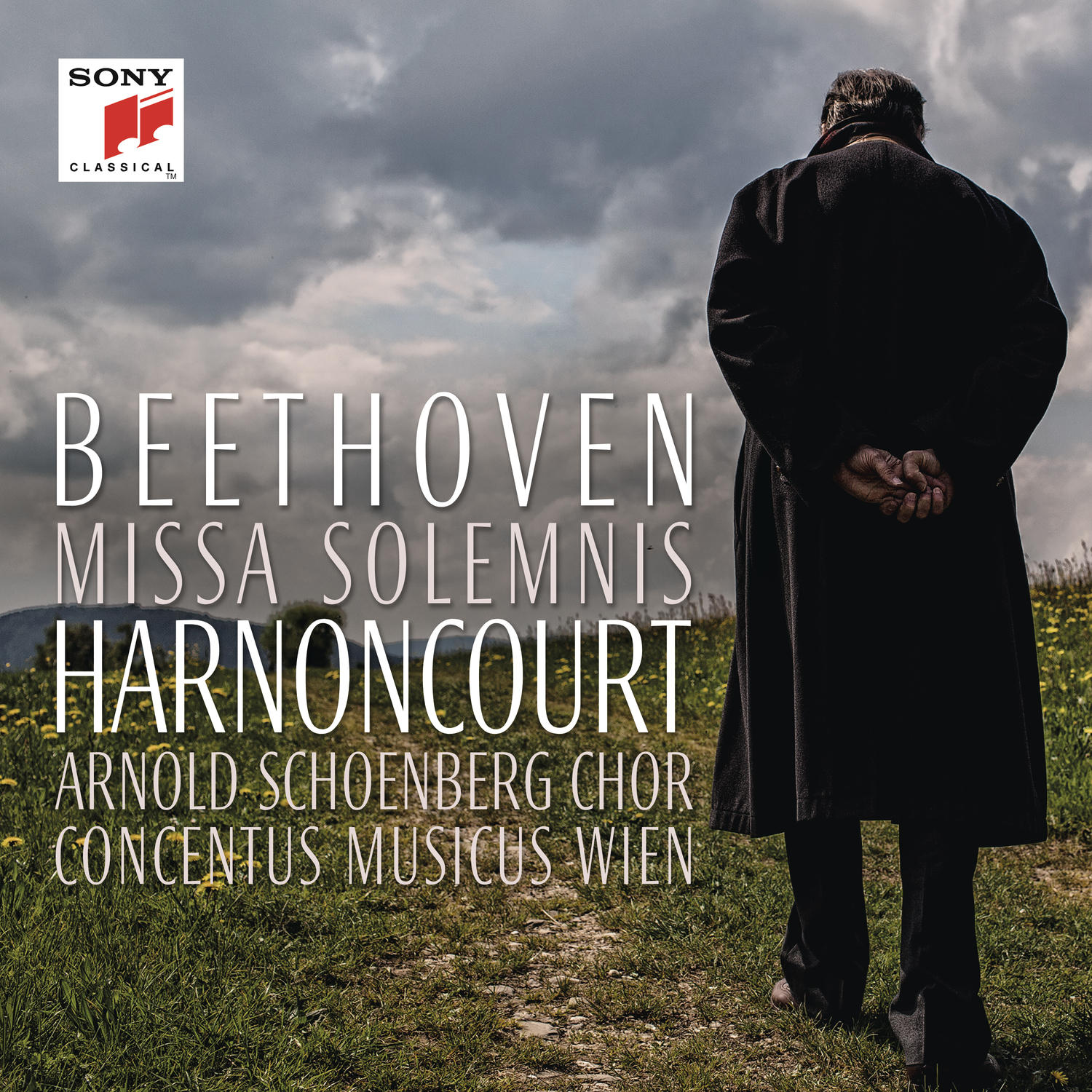
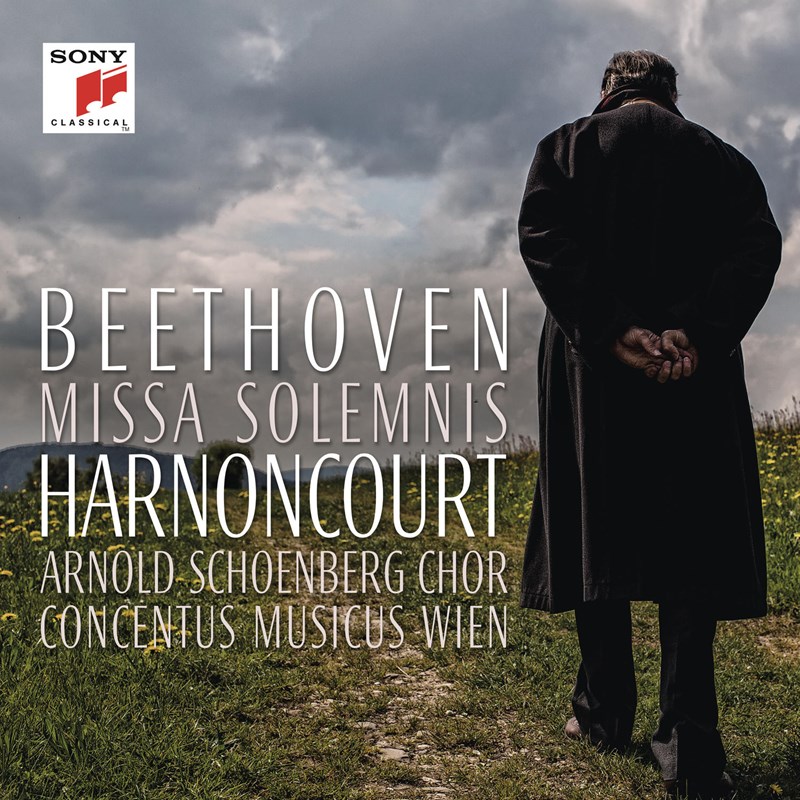
Missa Solemnis
Laura Aikin sop Elisabeth Kulman mez Johannes Chum ten Ruben Drole bass-bar Arnold Schoenberg Choir; Concentus Musicus Wien / Nikolaus Harnoncourt
Sony Classical
This is a remarkable account of Beethoven’s Missa solemnis and, in one important respect, an unusual one. For though it is in no sense lacking in drama, it is in essence a deeply devotional reading. And aptly so. ‘Mit Andacht’ – ‘with devotion’ – Beethoven writes time and again during the course of the work.
Where many of the Mass’s most praised interpreters have treated it as a species of music drama, the god Dionysus never far distant, Harnoncourt’s performance has an atmosphere you might more normally expect to encounter when listening to a piece such as the Fauré Requiem. His aim was to ‘develop the work from silence’ and ‘keep the usual frenzied sonorities within bounds’. A search for inner and outer peace – the aspiration Beethoven writes above the opening bars of the ‘Dona nobis pacem’ – is the performance’s ultimate goal...
Read the full review in the Reviews Database
Opera
Fidelio
Stemme; Kaufmann; Lucerne Festival Orchestra / Claudio Abbado
Decca
It was Abbado’s second Berlin Philharmonic symphony cycle from 2001 which thrust him more or less unexpectedly into the ranks of the immortals where Beethoven is concerned. And it was seven years after that, in Reggio Emilia in 2008, that he conducted his first Fidelio. Like Furtwängler in his 1953 studio recording, Abbado leads a viscerally charged performance that flies to the very heart of the matter, and does so in a version which, stripping away much of the spoken dialogue, recreates Beethoven’s lofty Singspiel as musical metatheatre...
Read the full review in the Reviews Database
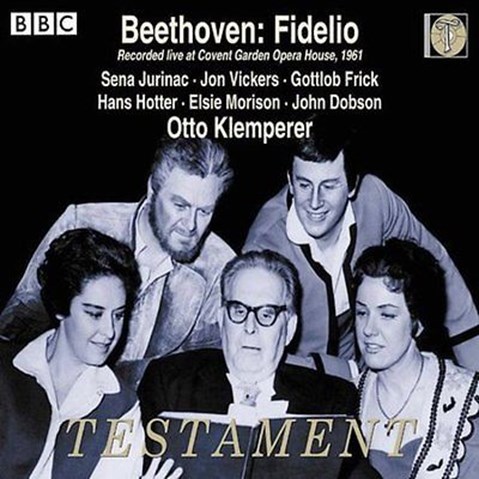
Fidelio
Jurinac; Vickers; Frick; Hotter; Chorus and Orchestra of the Royal Opera House, Covent Garden / Otto Klemperer
Testament mono
As month follows month and more and more live performances appear, our perspective on the purpose of recordings seem to be changing. In December we had Maria Callas’s 1952 Covent Garden Norma superseding her studio efforts; and here is the first night of Otto Klemperer’s legendary 1961 Fidelio, also from the Royal Opera House, to challenge his noted studio set from a year later. This confirms the Achilles’ heel of Walter Legge, EMI’s leading mogul at the time, in his unwillingness to record live occasions, probably because he liked to have every aspect of a recording under his control. In this case there is more to it than that. Klemperer wanted, in the studio, to retain his Covent Garden cast; Legge preferred to make changes with two exceptions (Jon Vickers and Gottlob Frick). On the evidence of this magnificent issue, Klemperer was right. Not only are the singers, by and large, better equipped for their roles, but given the electricity of the occasion the conductor’s interpretation is more vital (often faster tempi) and even more eloquent...
Read the full review in the Reviews Database
Thank you for visiting...
We have been writing about classical music for our dedicated and knowledgeable readers since 1923 and we would love you to join them.
To find the perfect subscription for you, simply visit: gramophone.co.uk/subscribe




